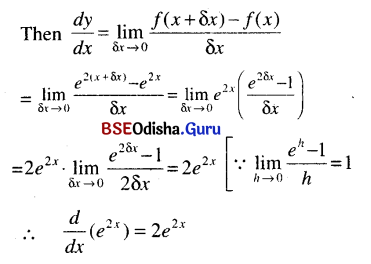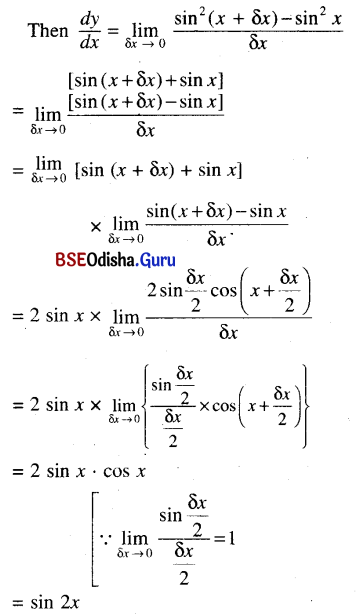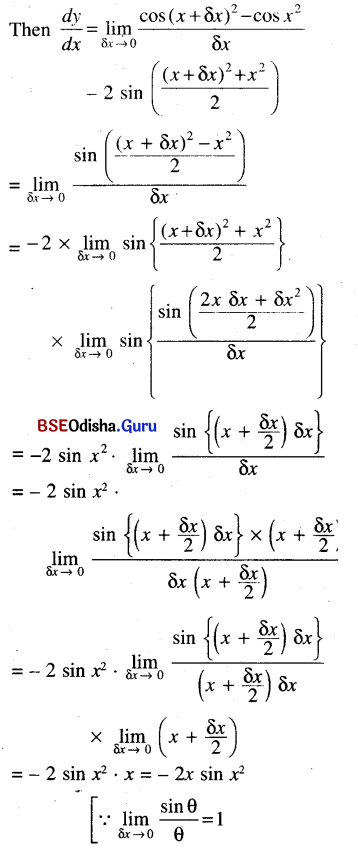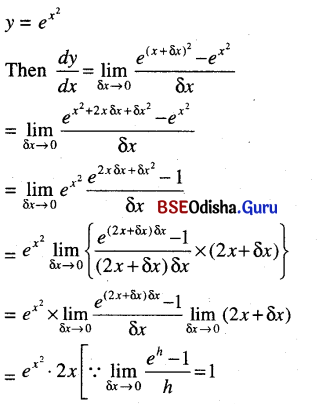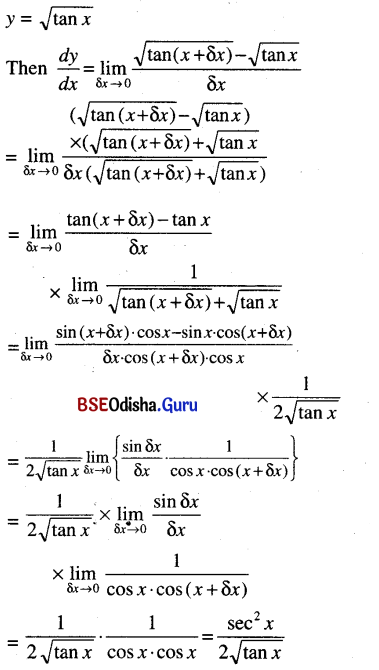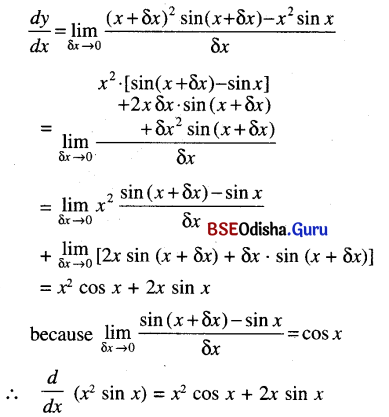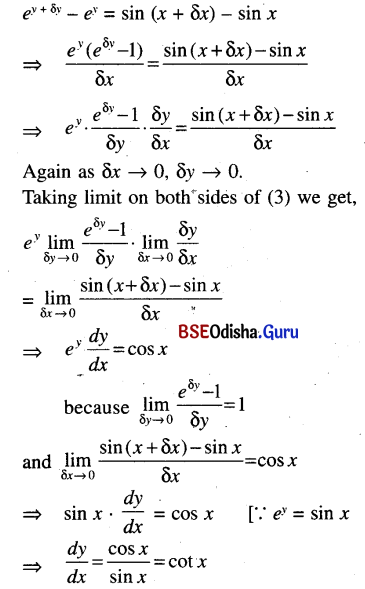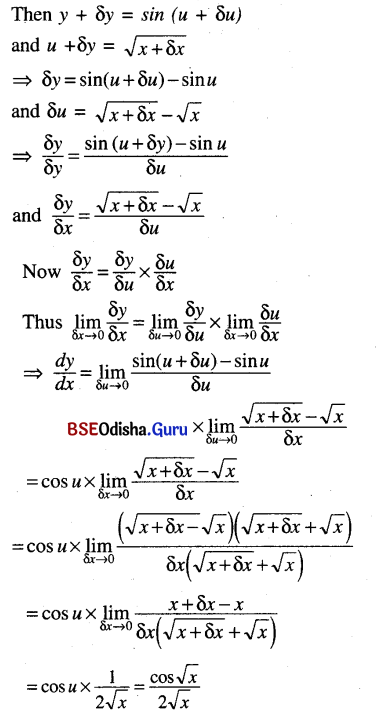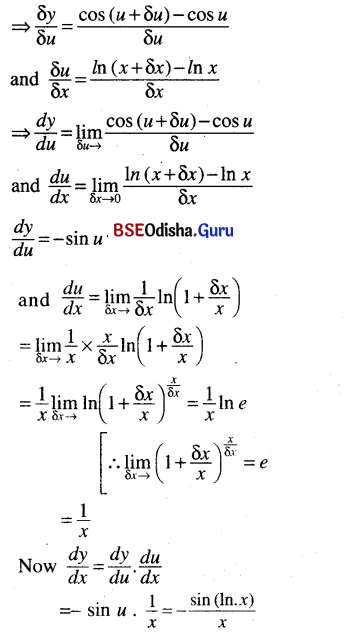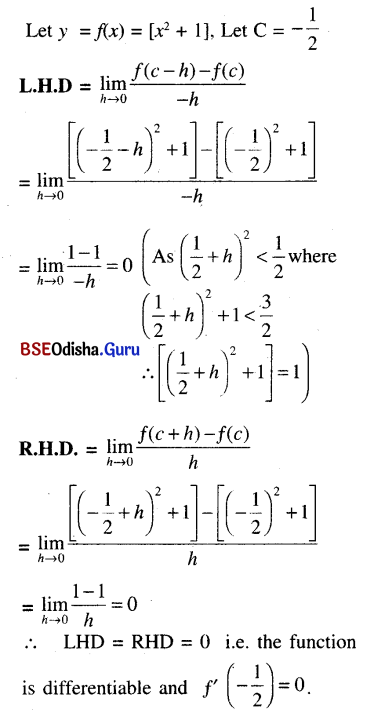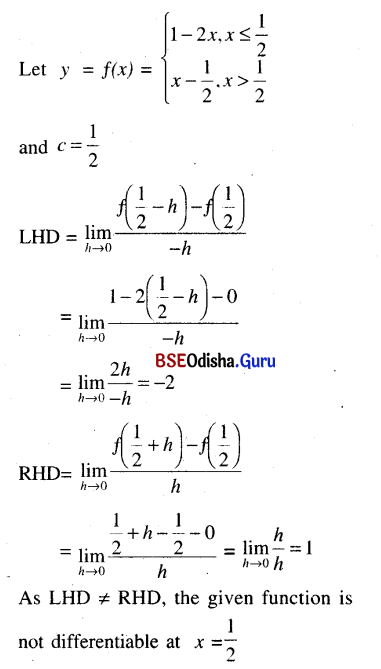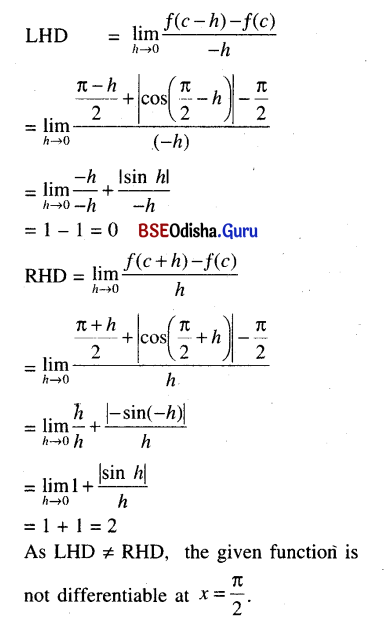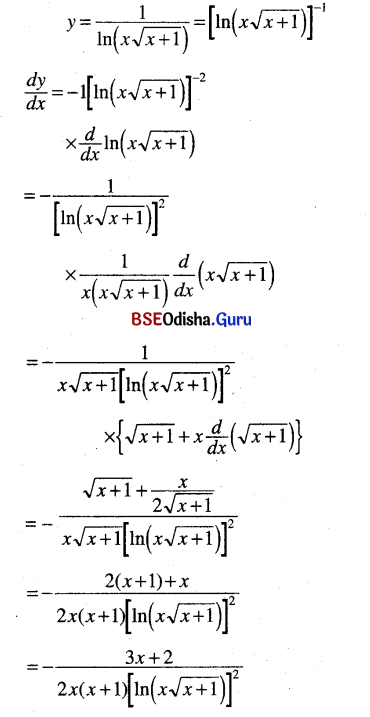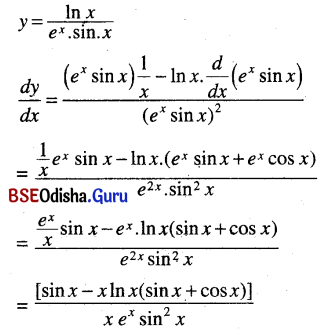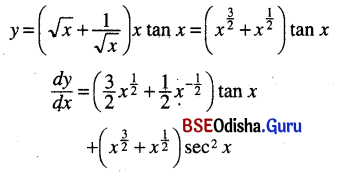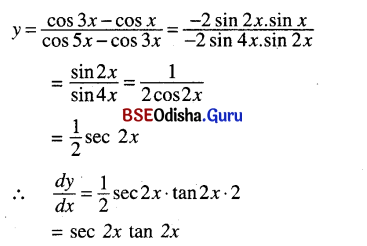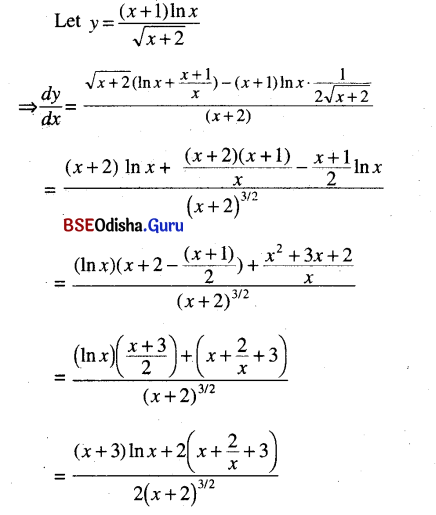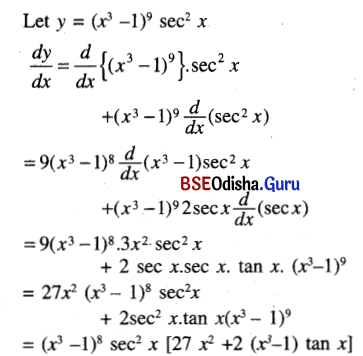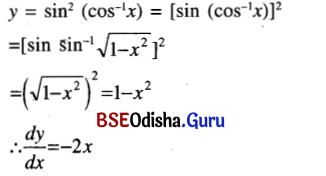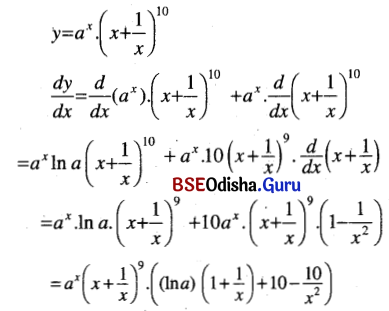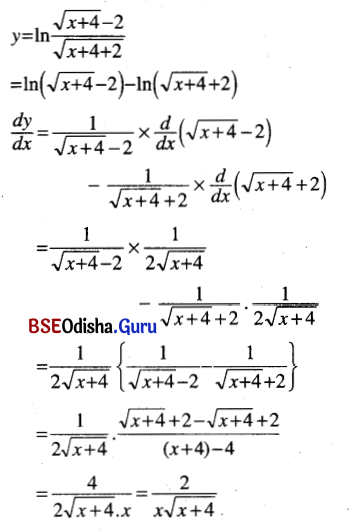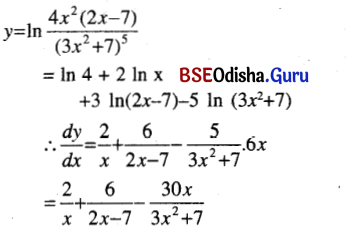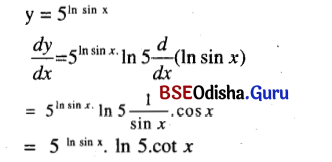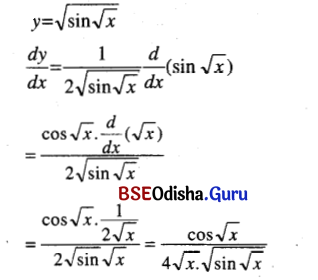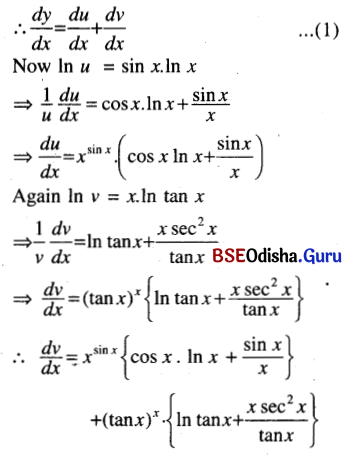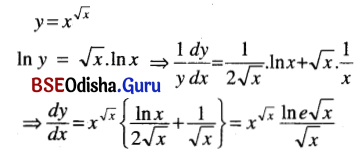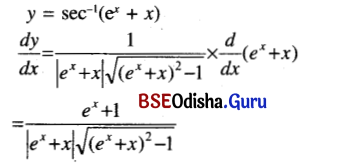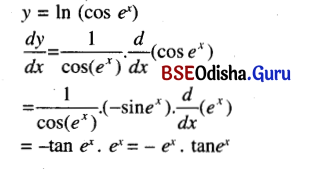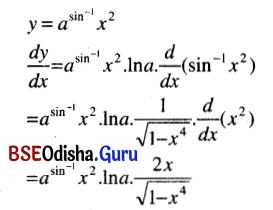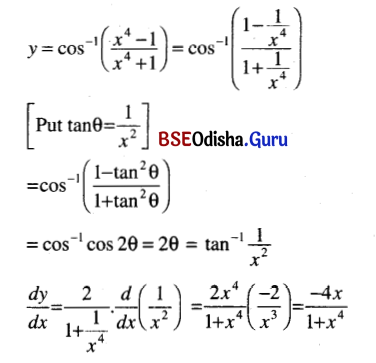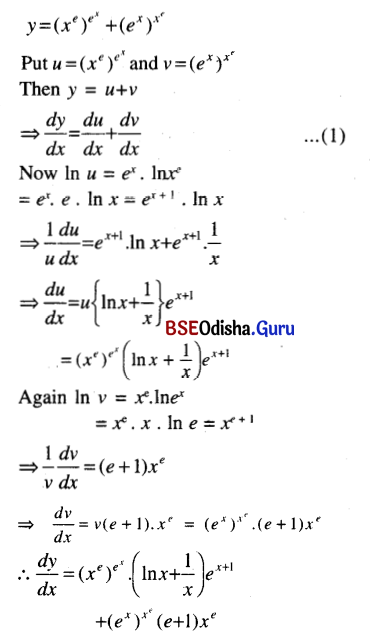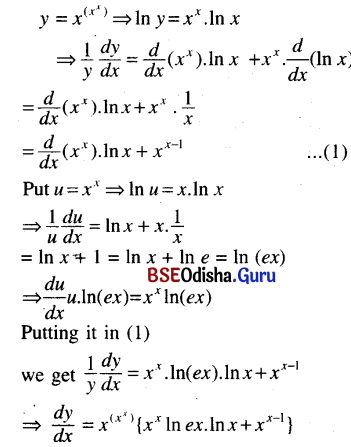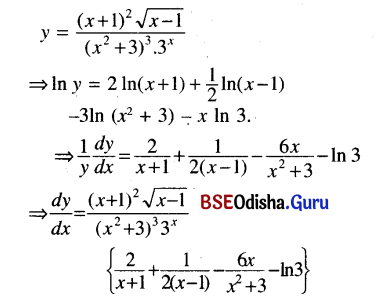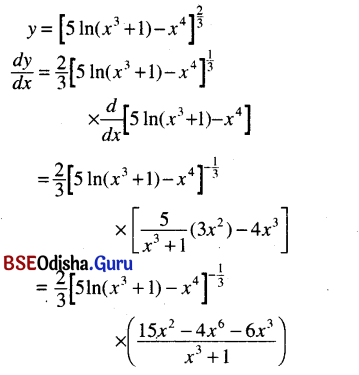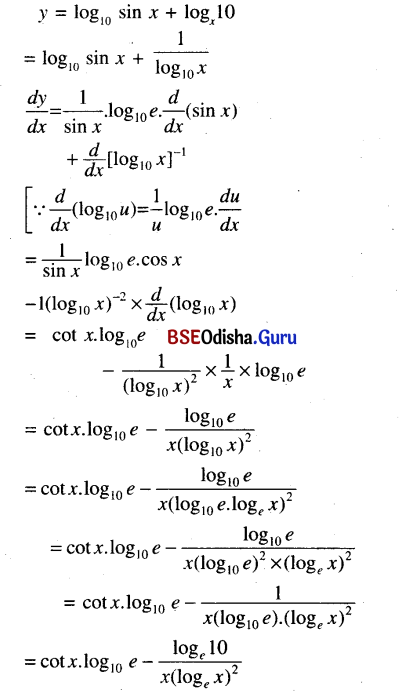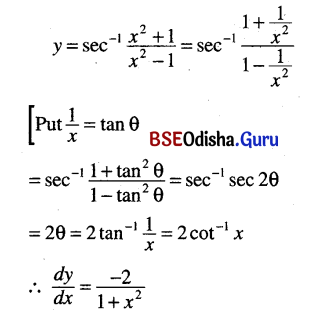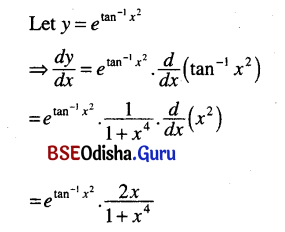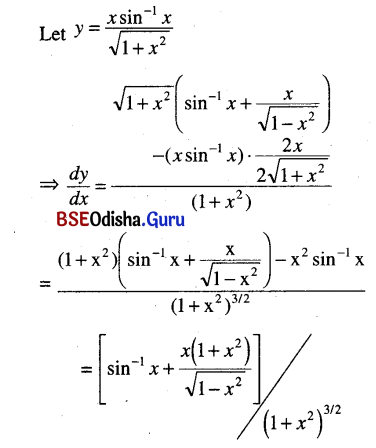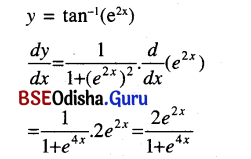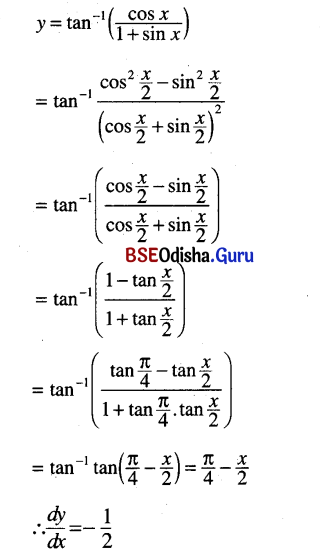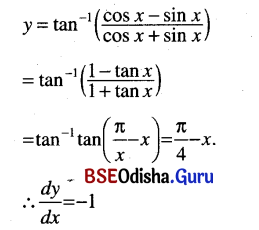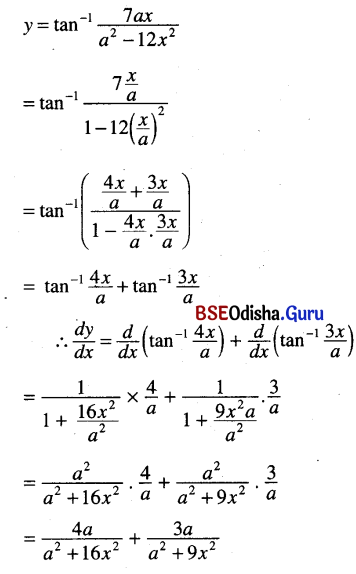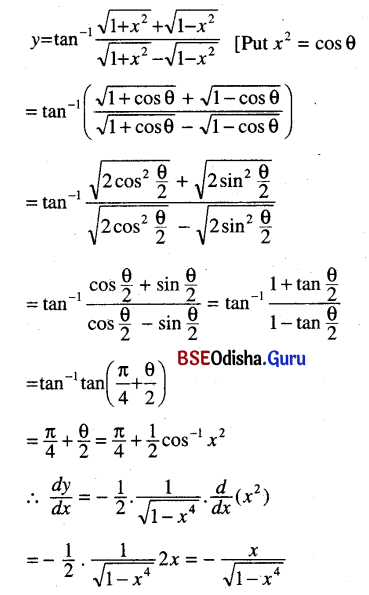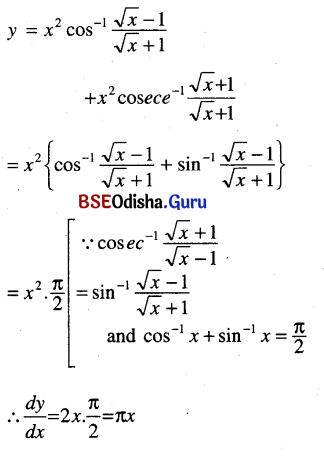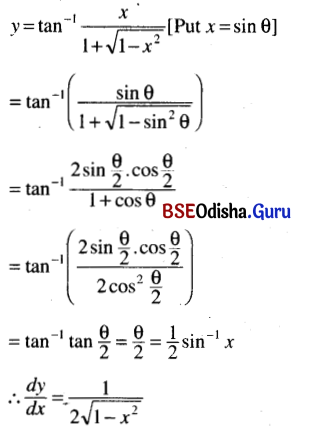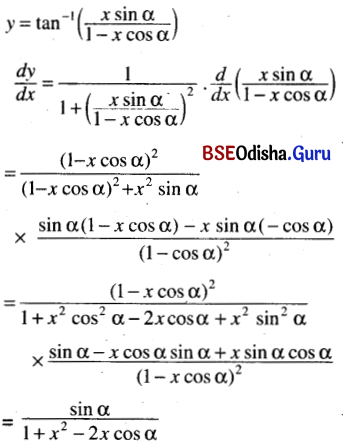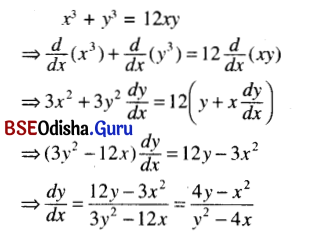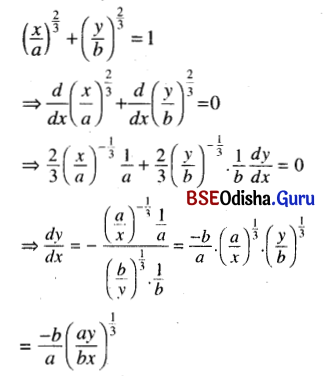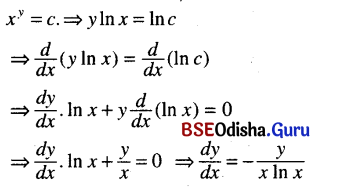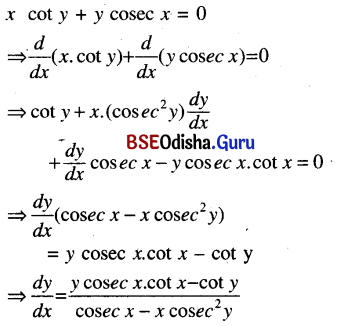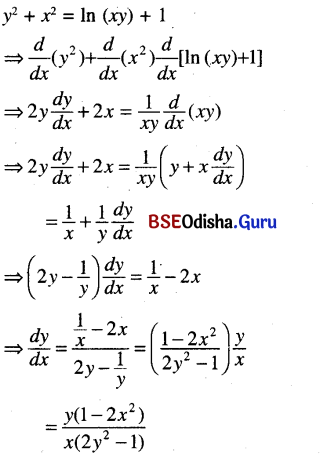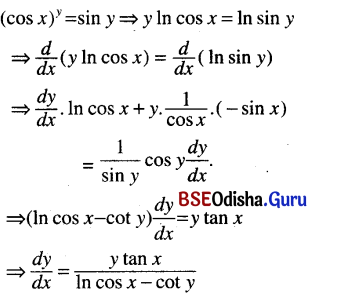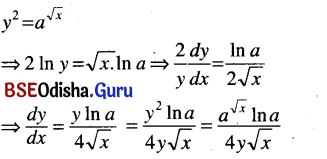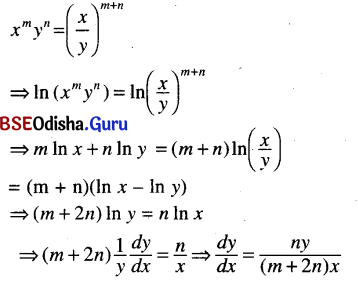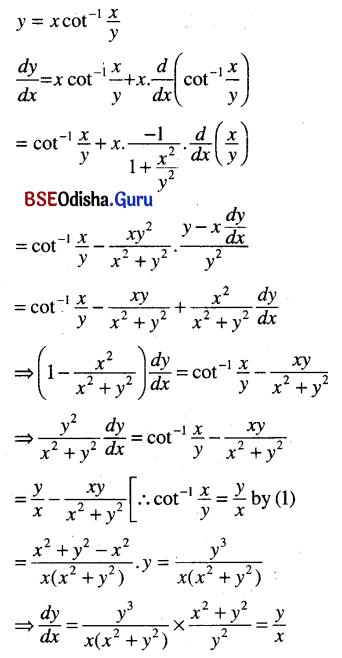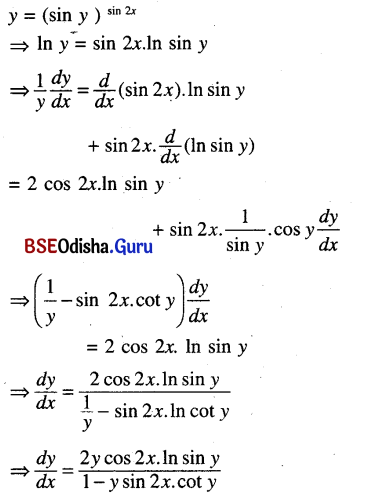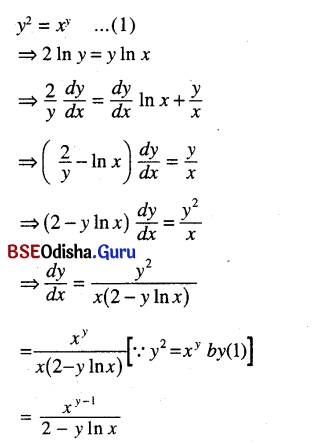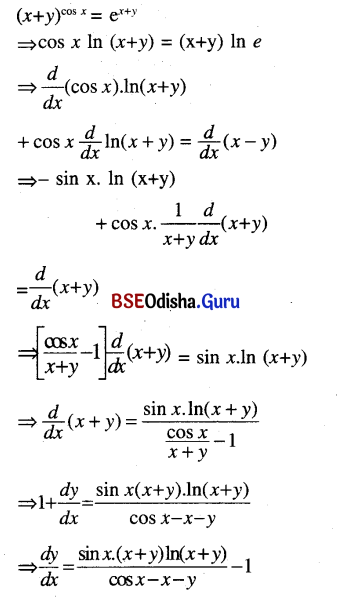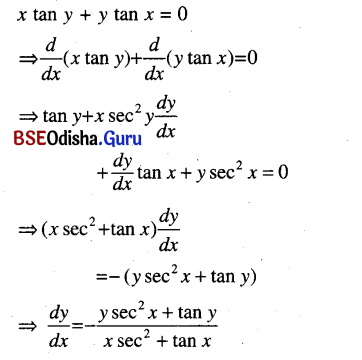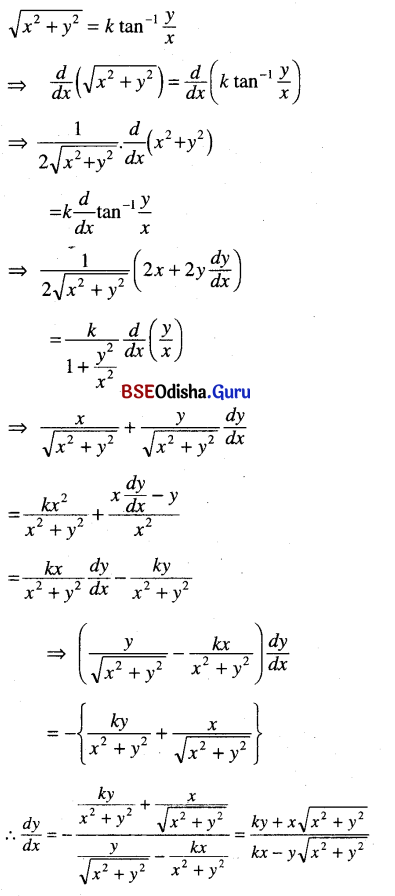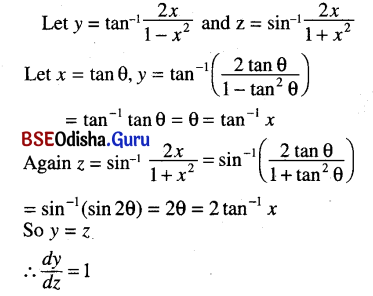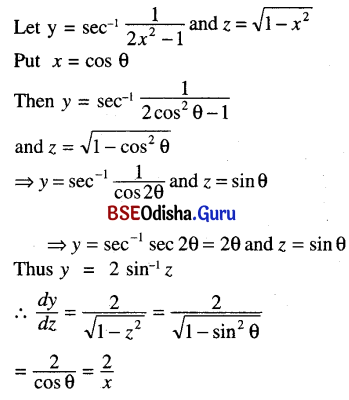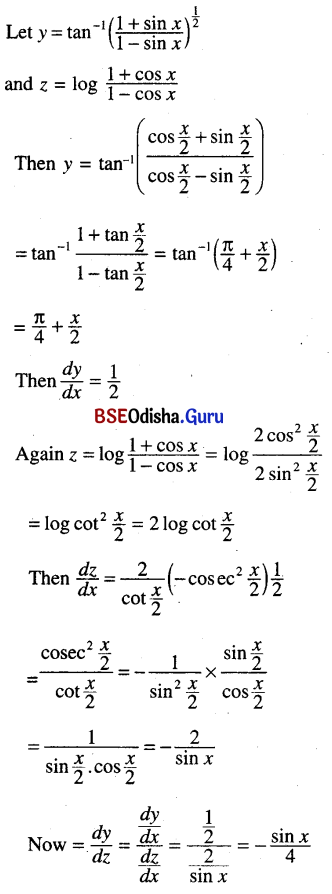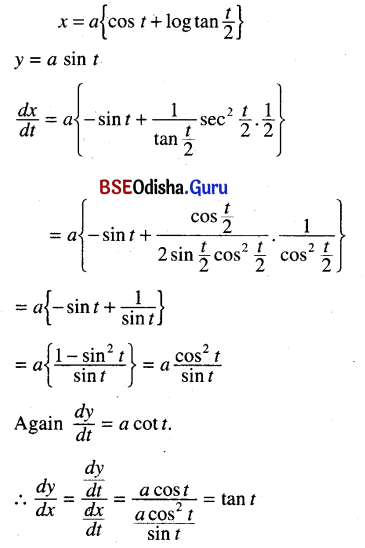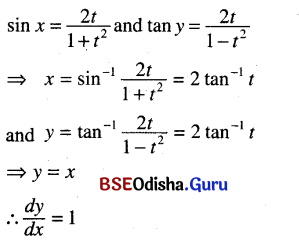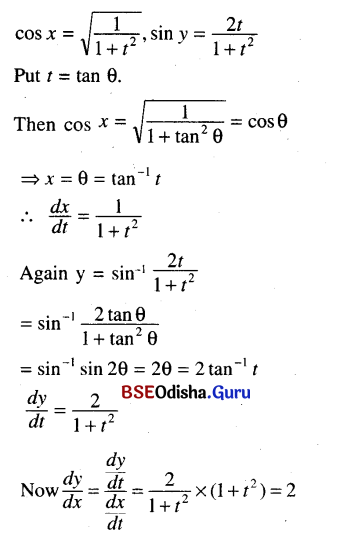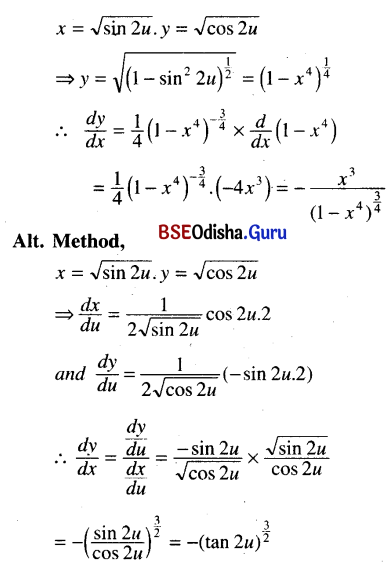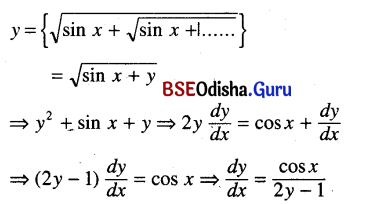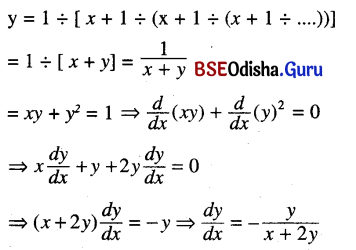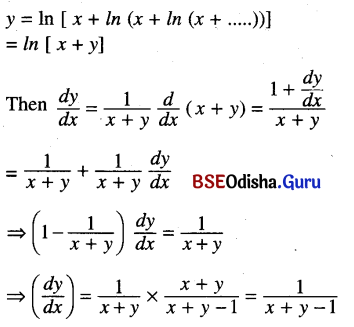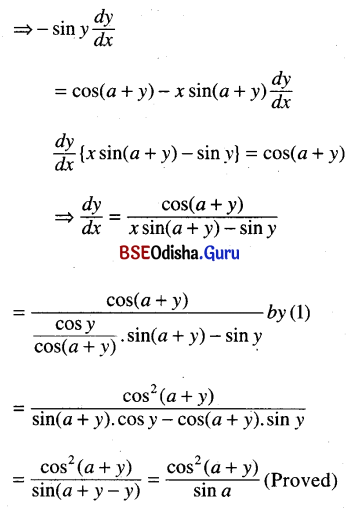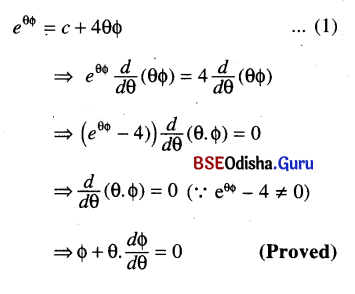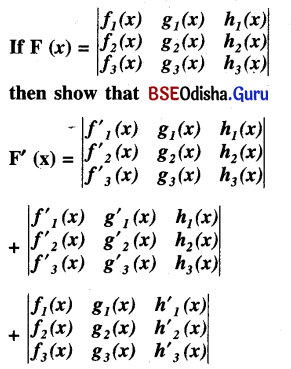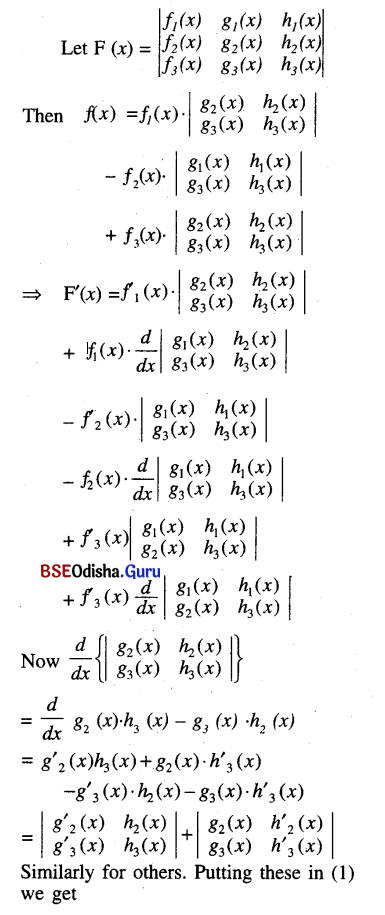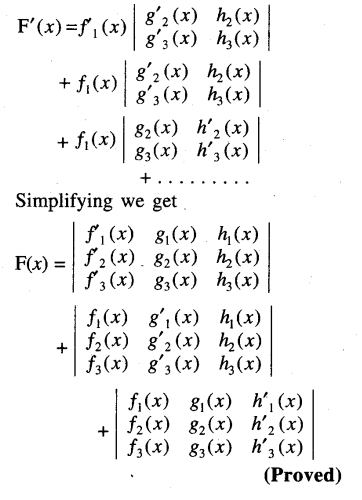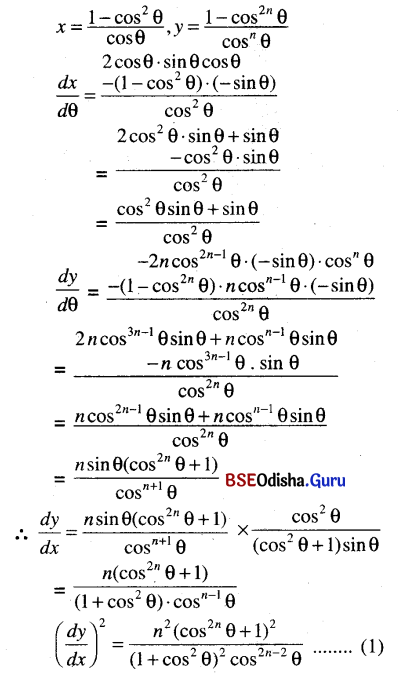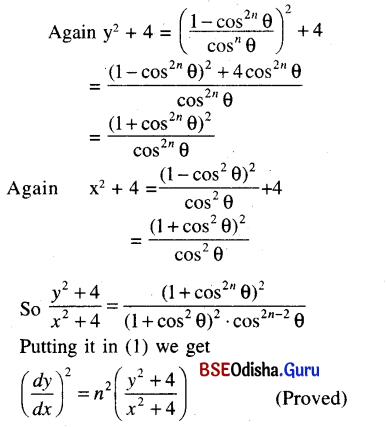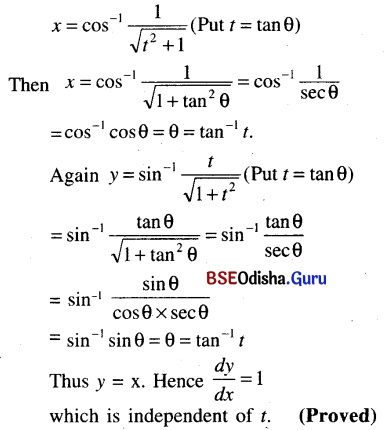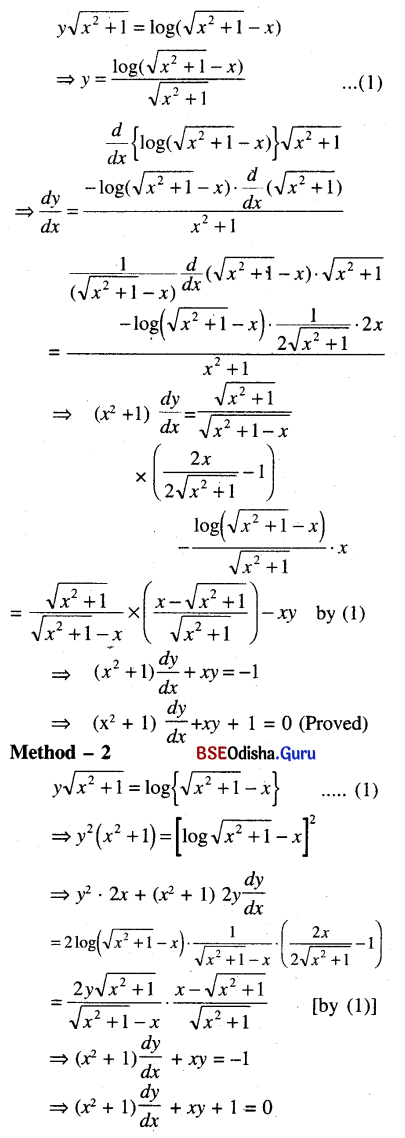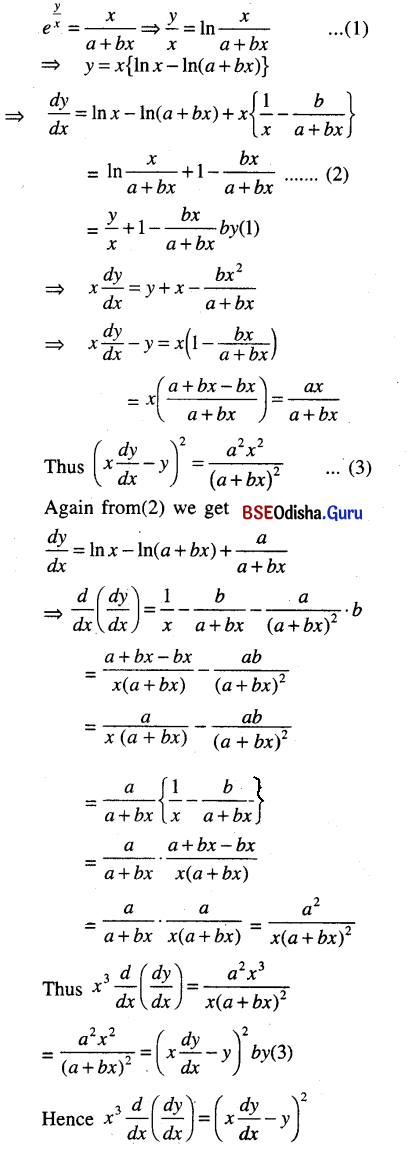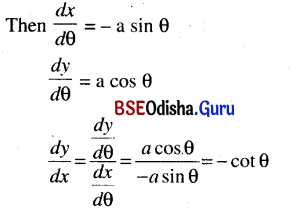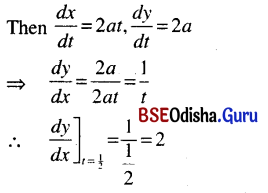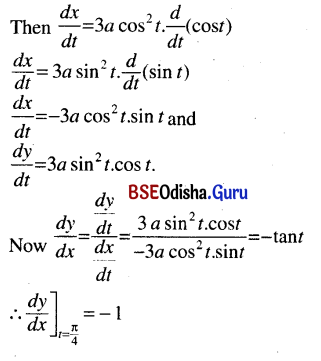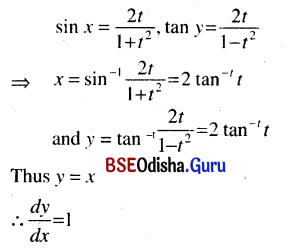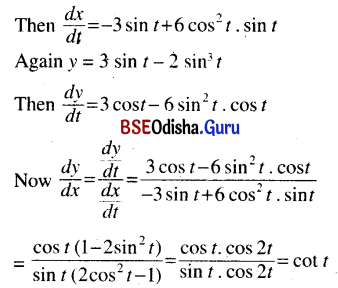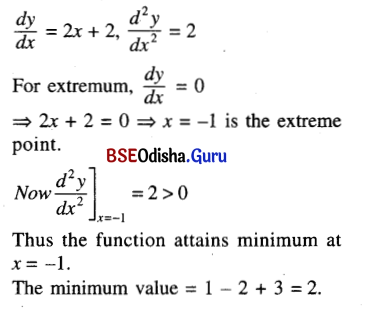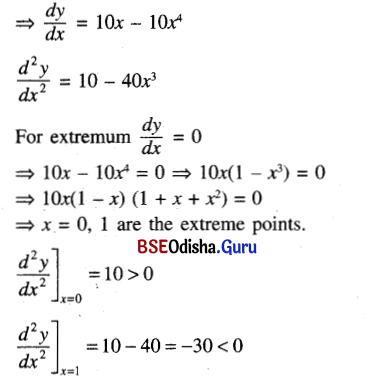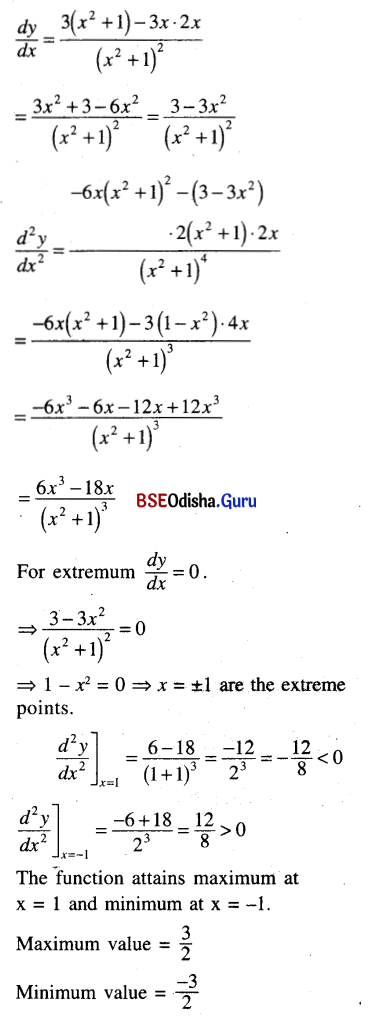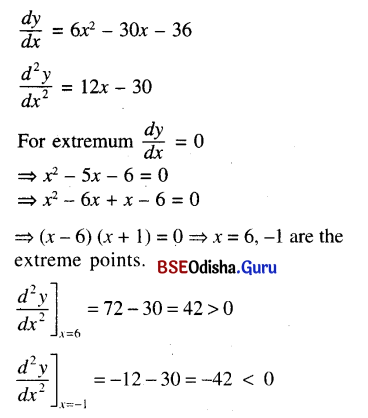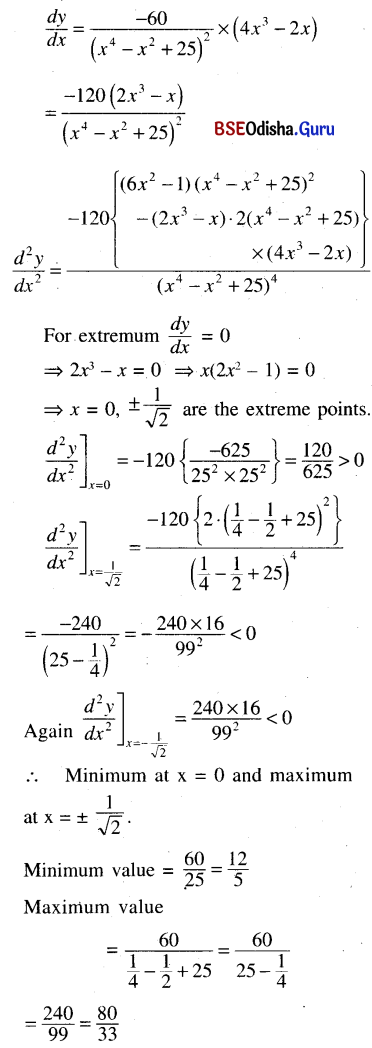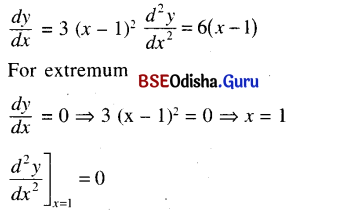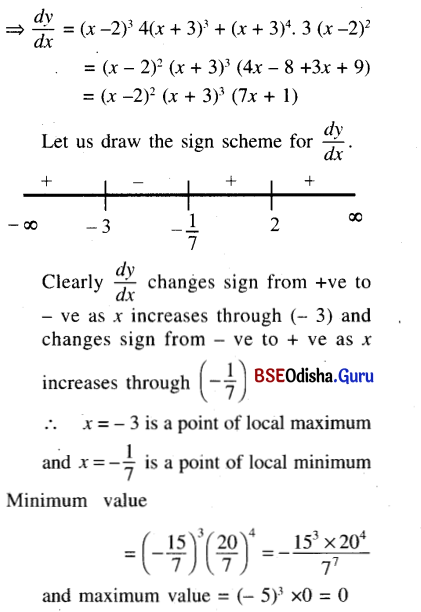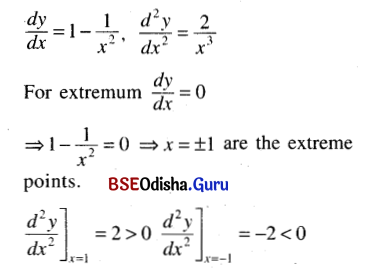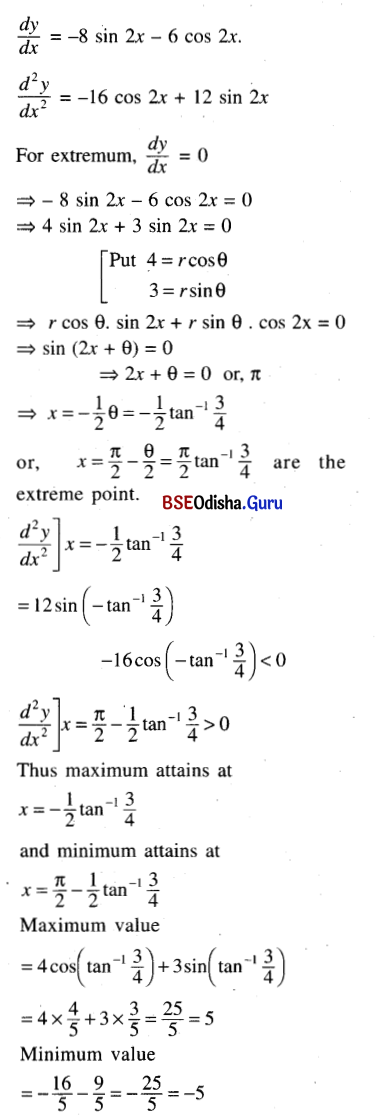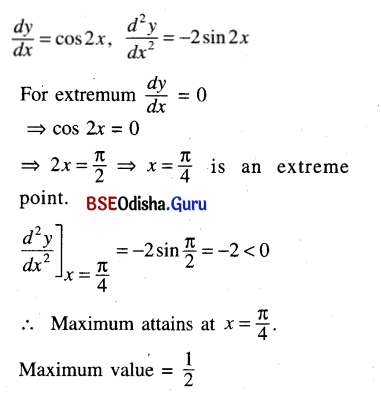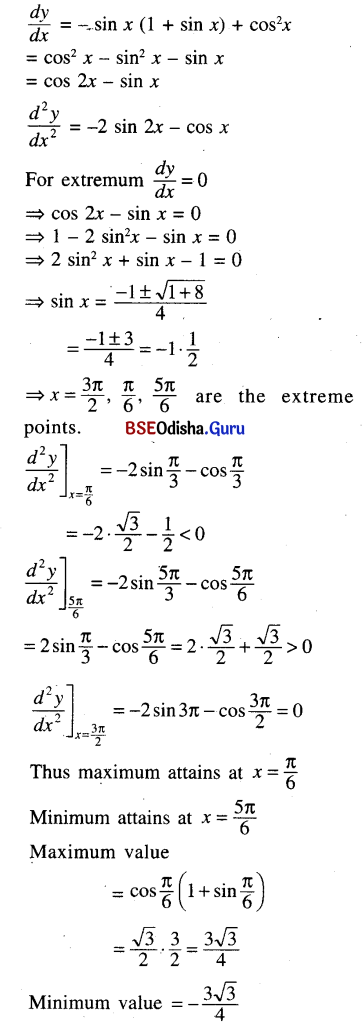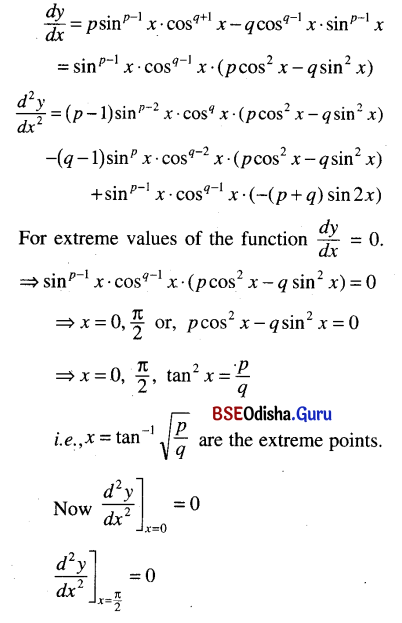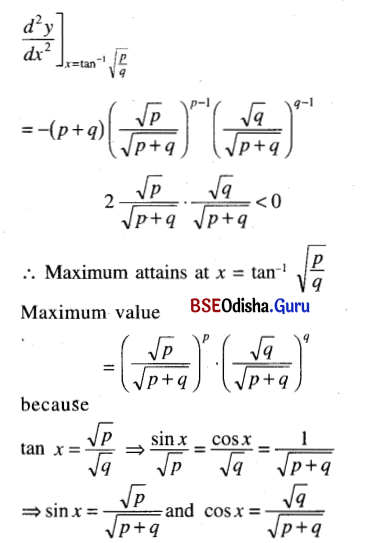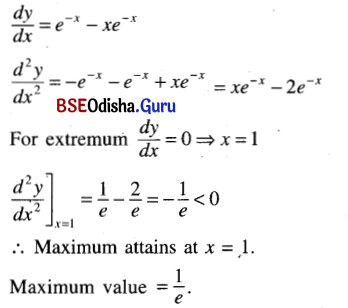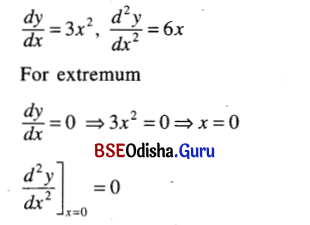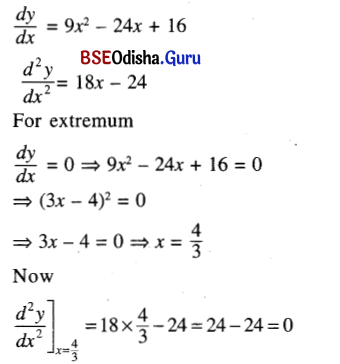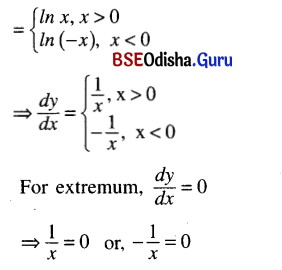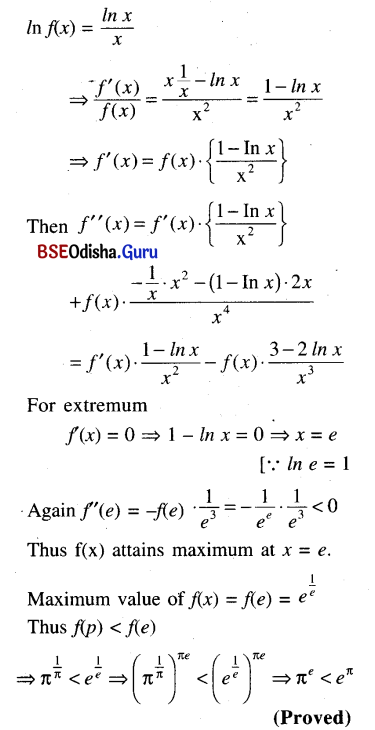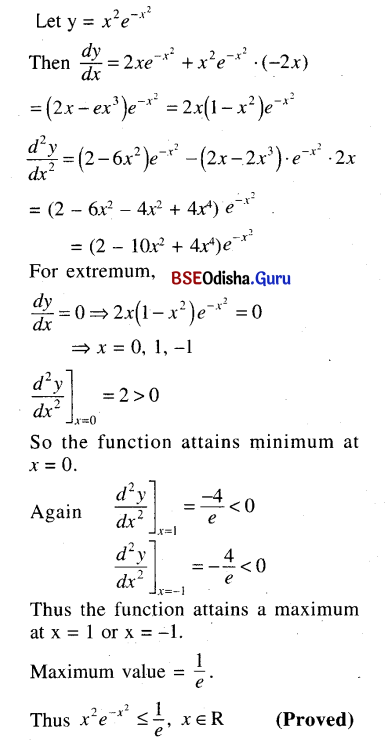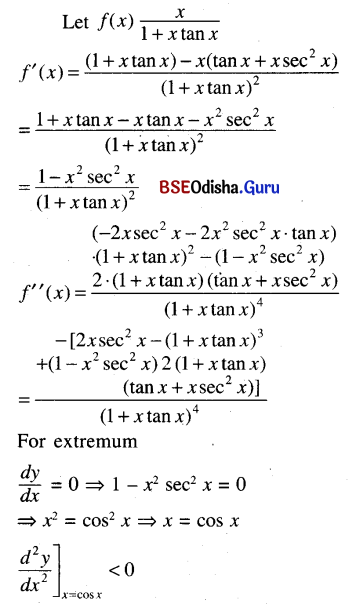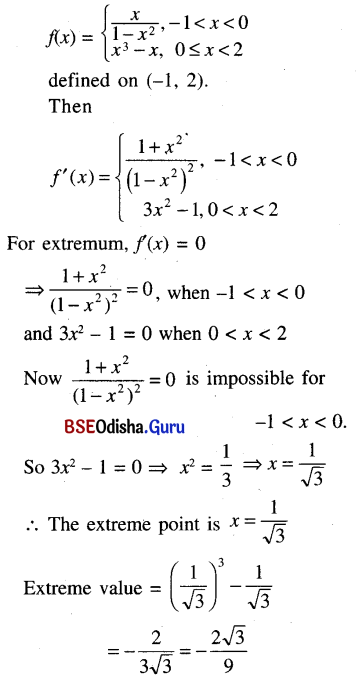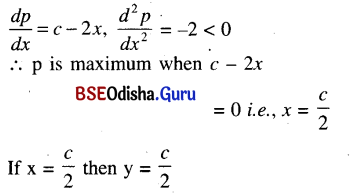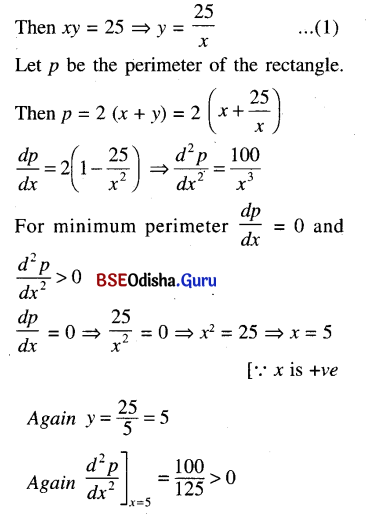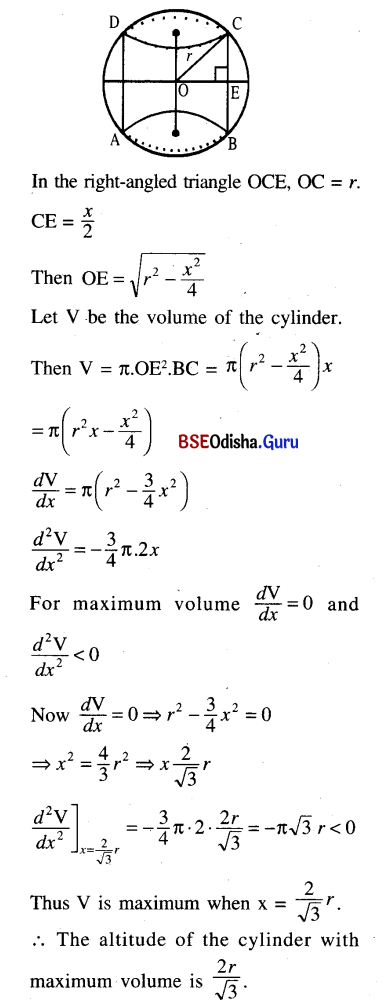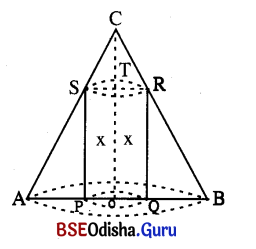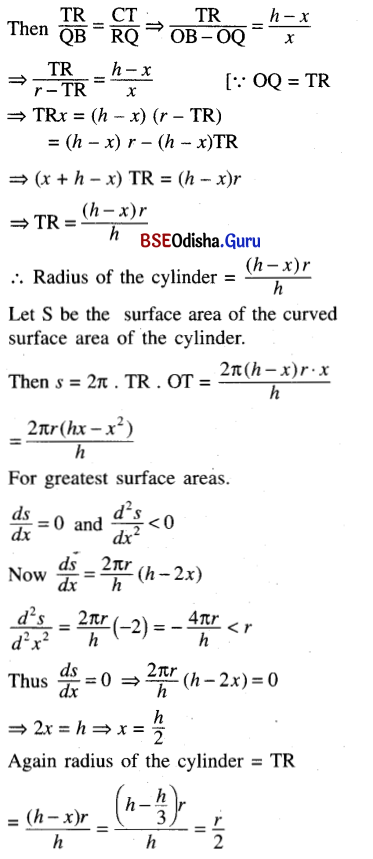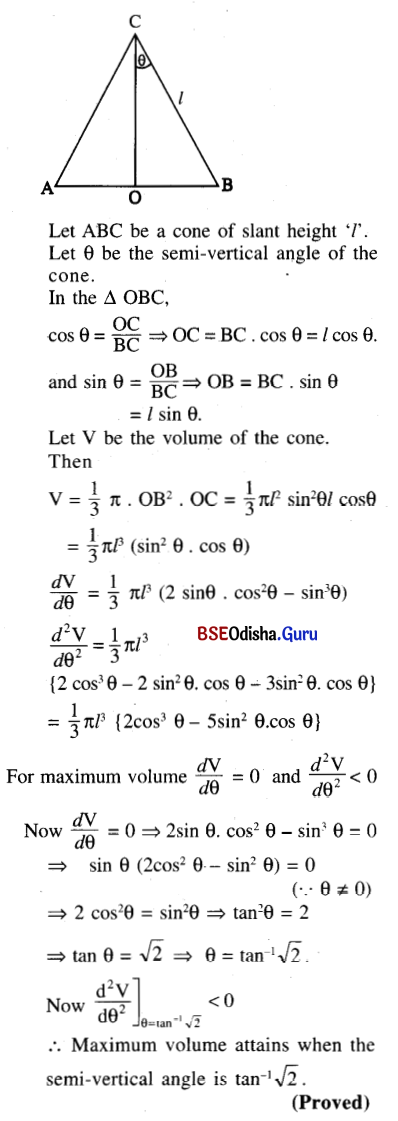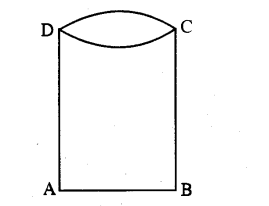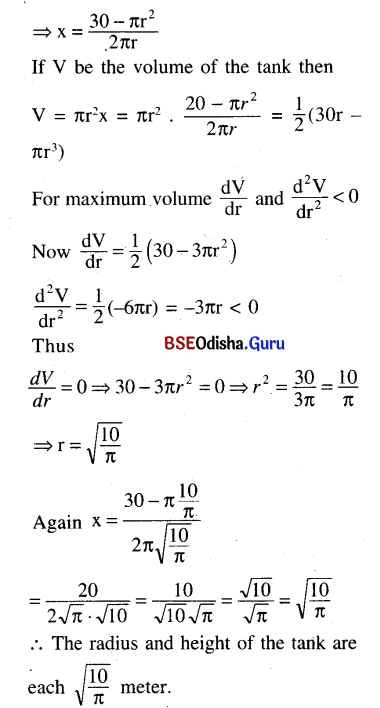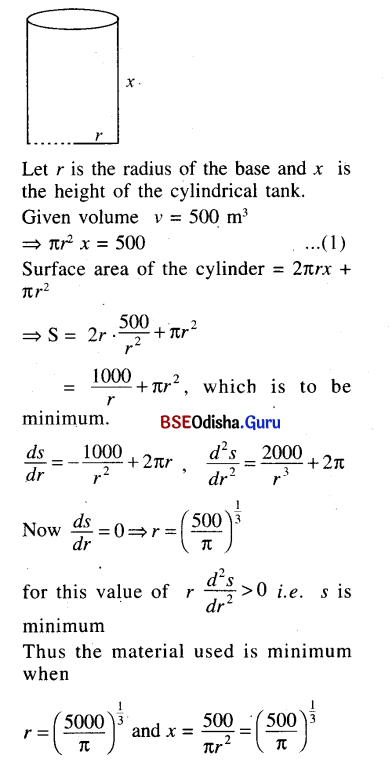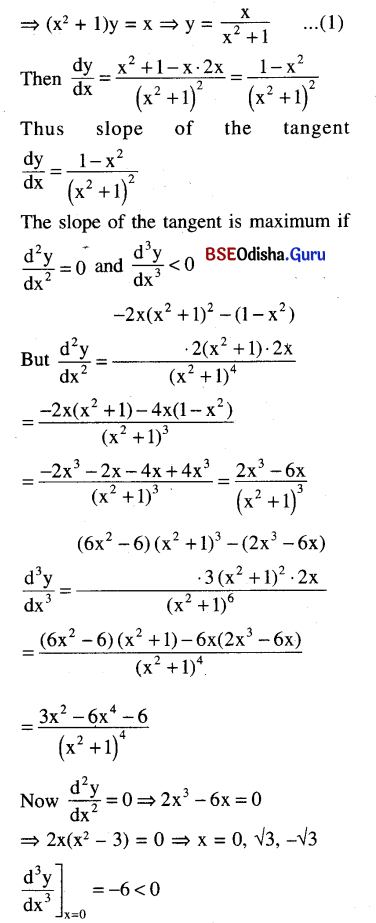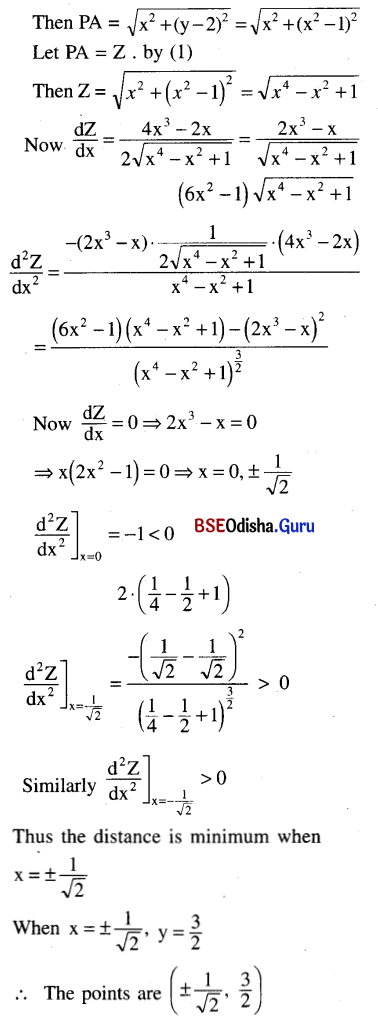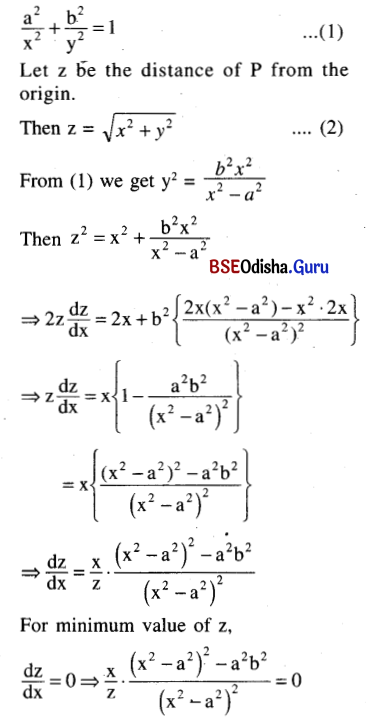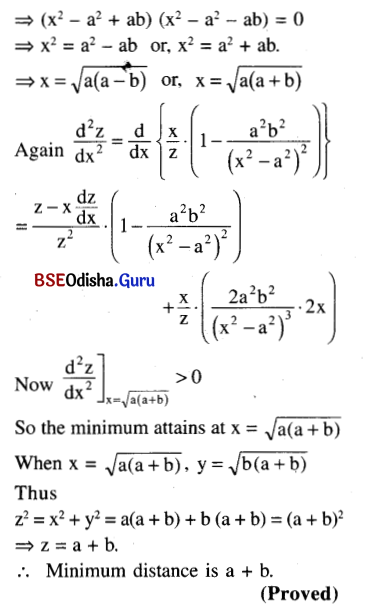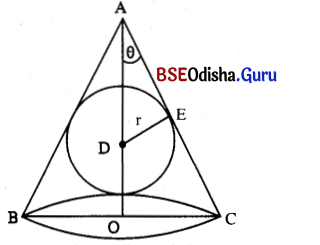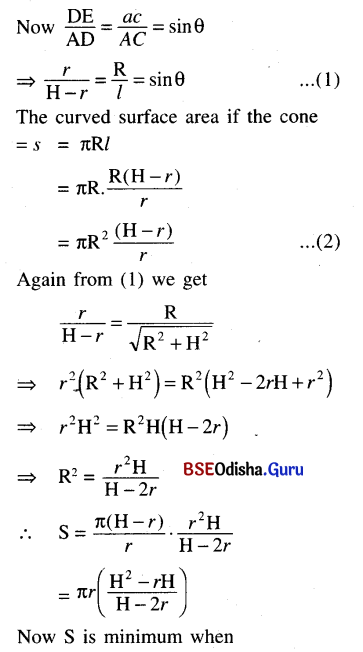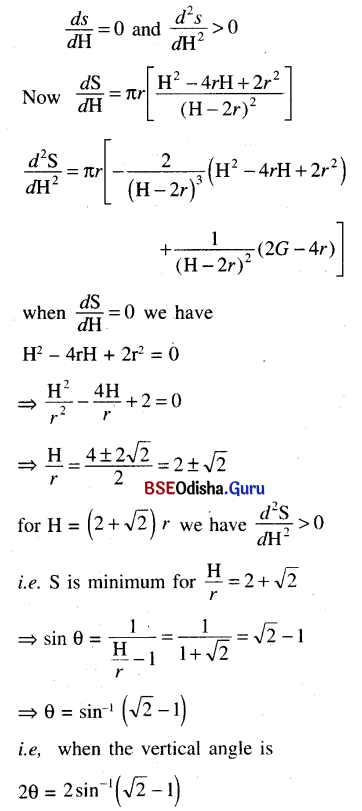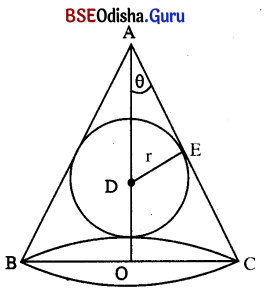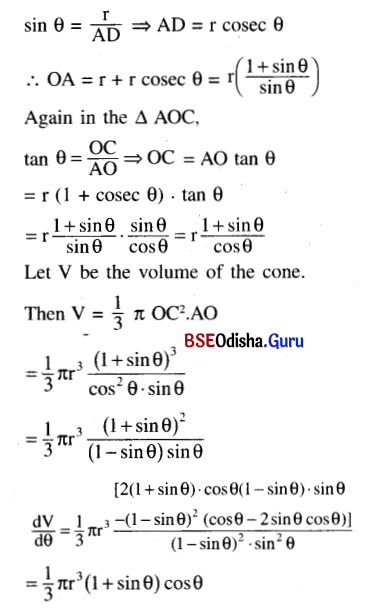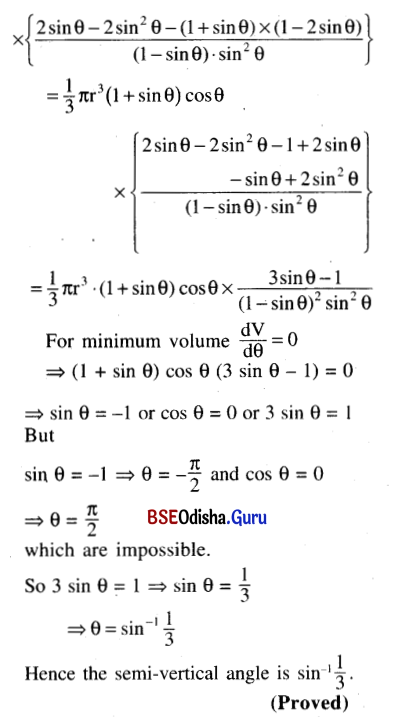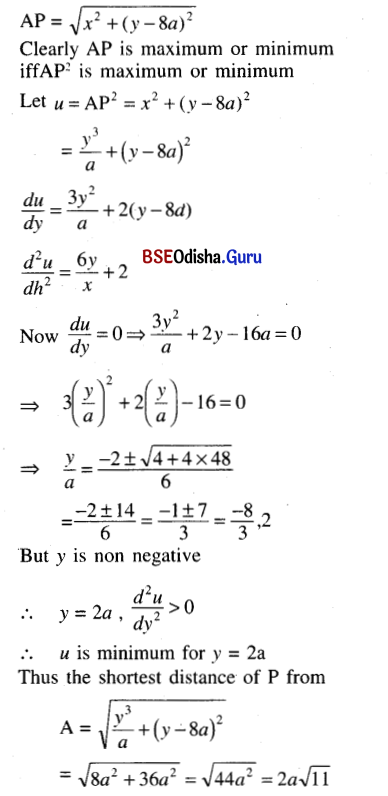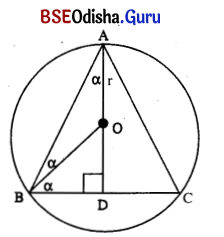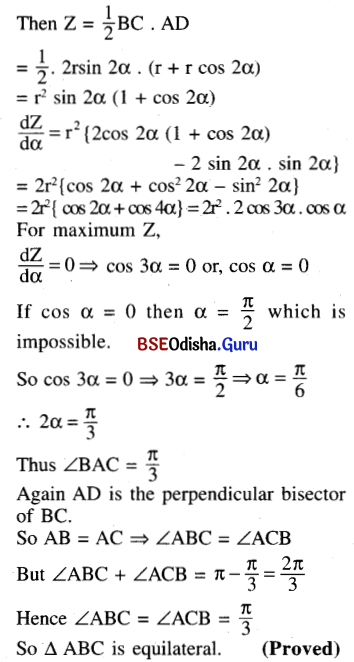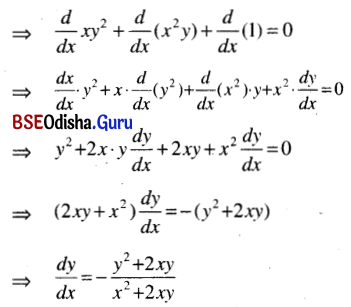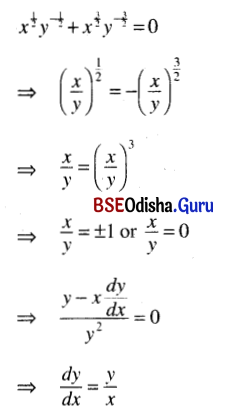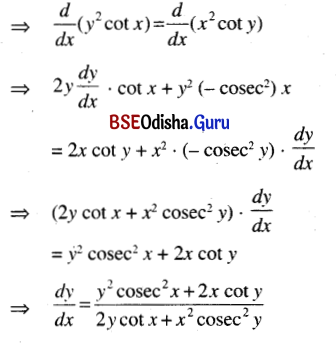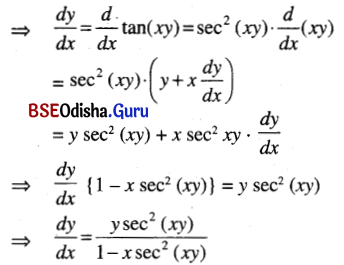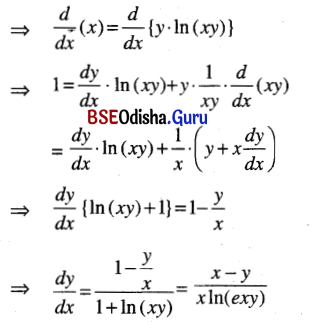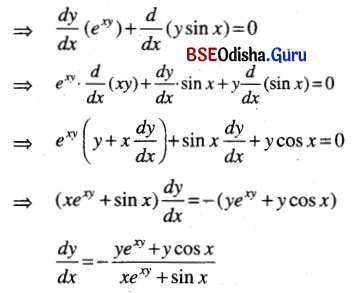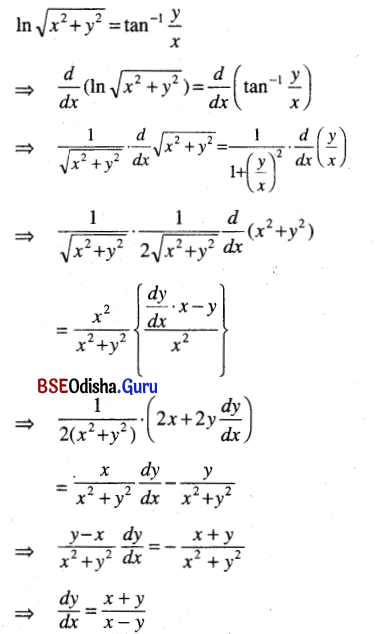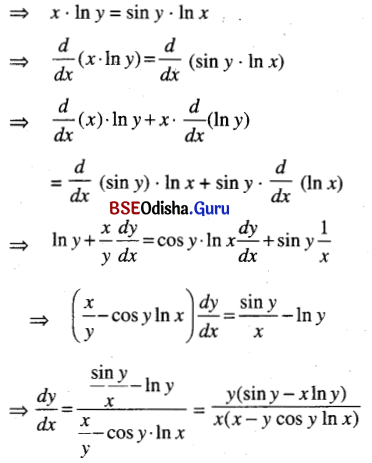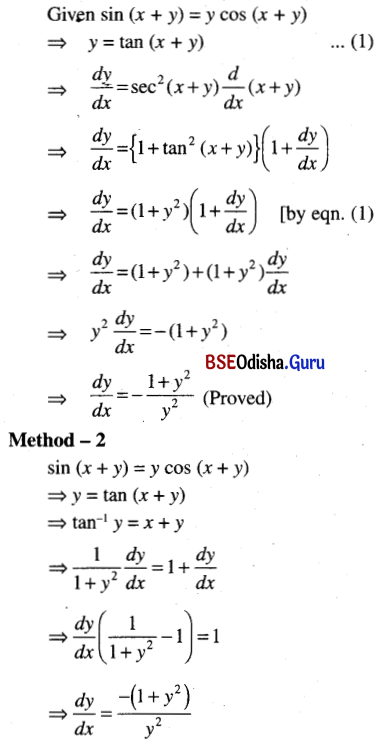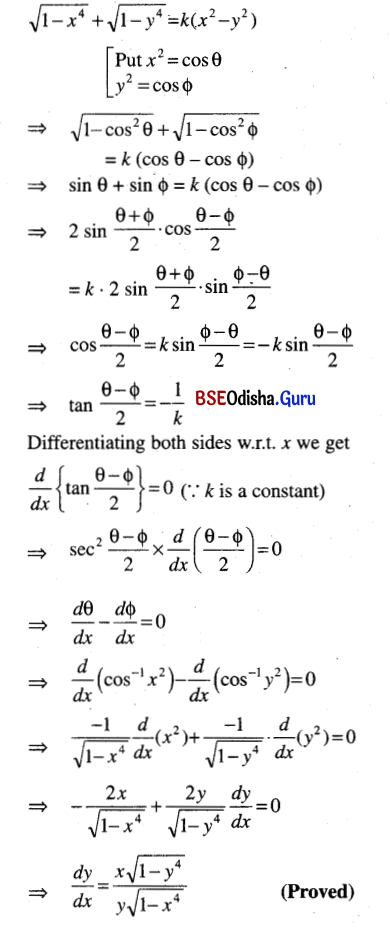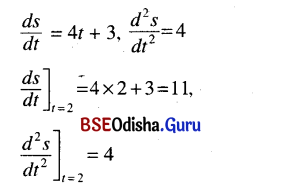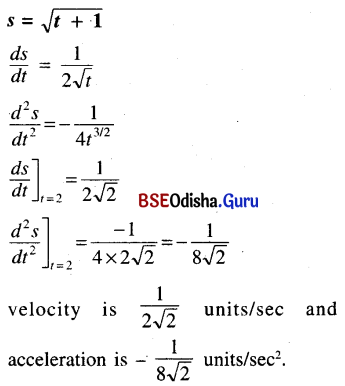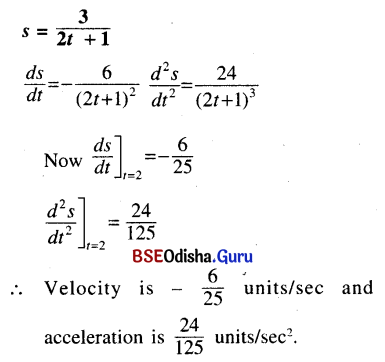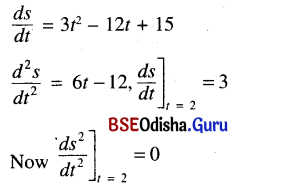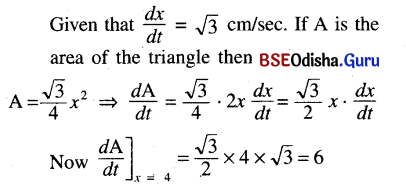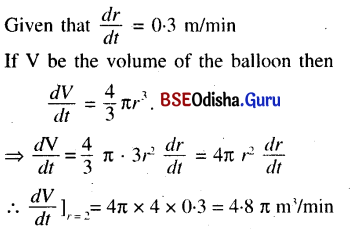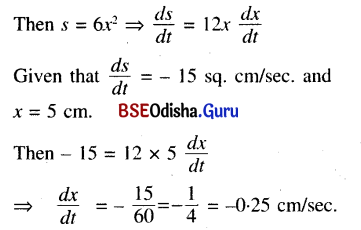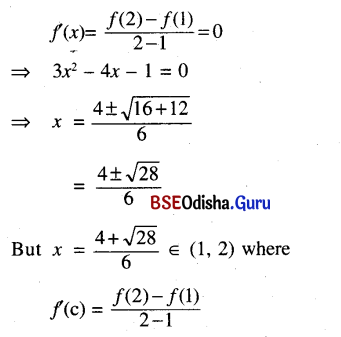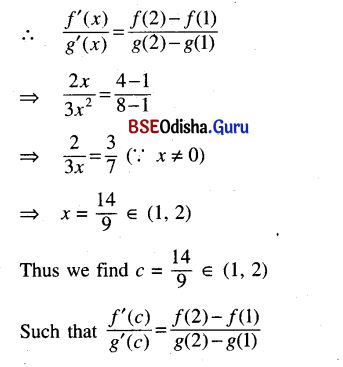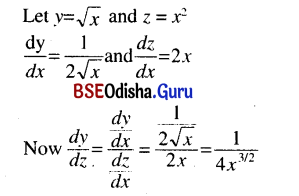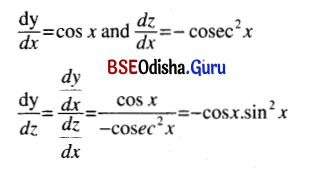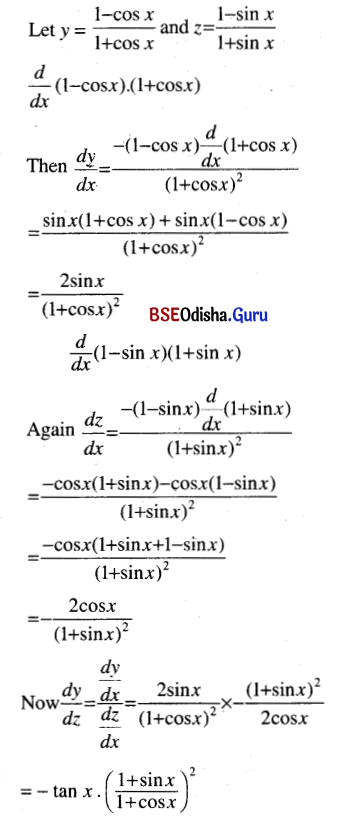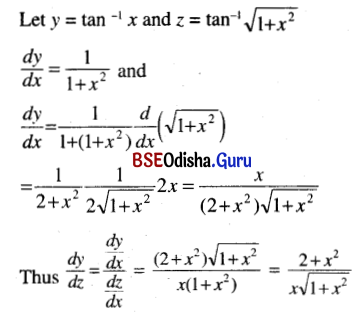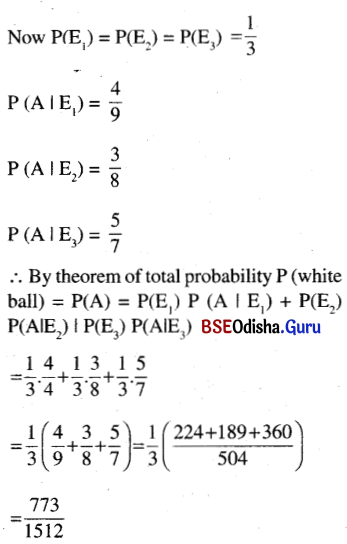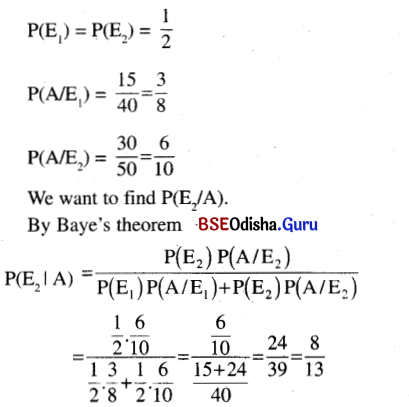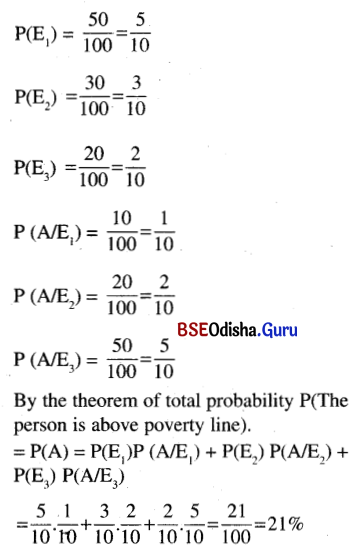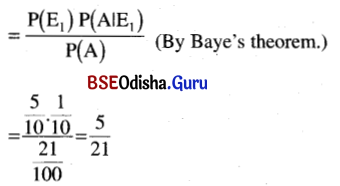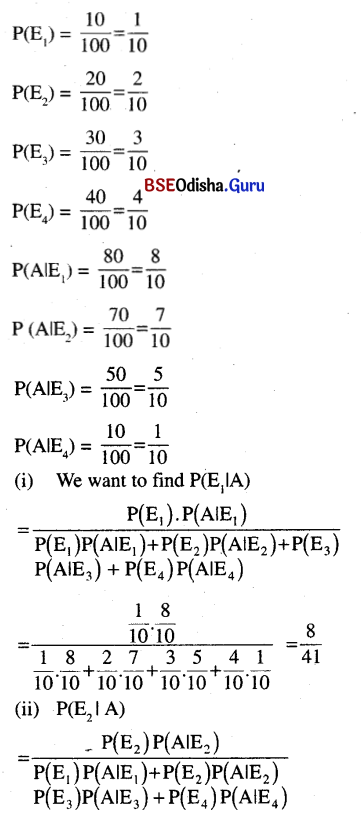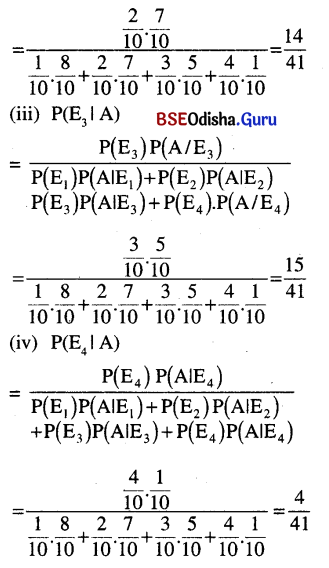Odisha State Board CHSE Odisha Class 12 Invitation to English 1 Solutions Chapter 2 On Examinations Textbook Exercise Questions and Answers.
CHSE Odisha 12th Class English Solutions Chapter 2 On Examinations
CHSE Odisha Class 12 English On Examinations Text Book Questions and Answers
Unit-wise Gist and Glossary:
Unit-1:
Gist:
To the writer, the world of examinations was not pleasant. He did not like those subjects which were very dear to the examiners. The subjects the writer liked most were history, poetry and essay writing. He was incapable of giving a satisfactory answer to Latin and mathematics. The examiners were keen on exposing his ignorance. As a result, he did not perform well in examinations. His entrance examination to Harrow was a bright example. The Latin prose paper was a thorn in his flesh. The writer wrote down the number of the question “I” in a bracket. Drops of his tears made stains on the paper. This was indeed a pathetic sight.
The writer gazed at it for two hours. At last, the attendant collected his paper including the other students. Thanks to the Headmaster Dr Welldon’s scholarship, he was able to pass the entrance test. His position in the merit list was the third or lowest form. The names of the new boys were printed on the School List in an alphabetical manner. The custom of calling the roll at Harrow differed from that of Eton; in the former, the students passed in front of a Master and responded one by one, but in the latter, the boys stood in a group and responded to their roll calls.
ସାରମର୍ମ :
ଲେଖକଙ୍କ ପାଇଁ ପରୀକ୍ଷାର ସଂସାର ସୁଖପ୍ରଦ ନ ଥିଲା । ପରୀକ୍ଷକମାନଙ୍କର ଯେଉଁସବୁ ବିଷୟ ପ୍ରିୟ ଥୁଲା, ସେଗୁଡ଼ିକ ତାଙ୍କୁ ଭଲ ଲାଗୁ ନ ଥିଲା । ସେ ଇତିହାସ, କବିତା ଏବଂ ରଚନାଲେଖା ଆଦି ବିଷୟକୁ ଖୁବ୍ ଭଲ ପାଉଥିଲେ । ଲାଟିନ୍ ଏବଂ ଗଣିତରେ ସେ ସନ୍ତୋଷଜନକ ଉତ୍ତର ଦେଇପାରୁ ନଥିଲେ । ପରୀକ୍ଷକମାନେ ତାଙ୍କର ଅଜ୍ଞତାକୁ ପଦାରେ ପକାଇ ଦେବାକୁ ଆଗ୍ରହୀ ଥିଲେ । ତେଣୁ ସେ ପରୀକ୍ଷାଗୁଡ଼ିକରେ ଭଲ କରିପାରୁ ନ ଥିଲେ । ହ୍ୟାରେ ବିଦ୍ୟାଳୟରେ ପଢ଼ିବାପାଇଁ ତାଙ୍କର ପ୍ରବେଶିକା ପରୀକ୍ଷା ଏହାର ଏକ ଜ୍ଵଳନ୍ତ ଉଦାହରଣ । ଲାଟିନ୍ ଗଦ୍ୟ ପ୍ରଶ୍ନପତ୍ର ତାଙ୍କ ଦେହରେ ଏକ କଣ୍ଟା ସଦୃଶ ଥିଲା । ଲେଖକ ବନ୍ଧନୀ ମଧ୍ୟରେ କେବଳ ପ୍ରଶ୍ନର ନମ୍ବର “I” ଲେଖୁଥିଲେ । ତାଙ୍କ ଆଖିର କେଇ ବୁନ୍ଦା ଲୁହ ଖାତାରେ ଦାଗସବୁ ସୃଷ୍ଟି କରିଥିଲା ।
ଏହା ଏକ କରୁଣ ଦୃଶ୍ୟ ଥିଲା । ଦୁଇ ଘଣ୍ଟା ଧରି ଲେଖକ ଏହାକୁ ଚାହିଁ ରହିଥିଲେ । ଶେଷରେ ଅନ୍ୟ ଛାତ୍ରମାନଙ୍କ ପରୀକ୍ଷାଖାତା ସହ ସହାୟକ ଜଣକ ତାଙ୍କ ଖାତା ନେଇଗଲେ । ଯାହାହେଉ ଡକ୍ଟର ୱେଲଟନଙ୍କର ପାଣ୍ଡିତ୍ୟ ଯୋଗୁ ସେ ପ୍ରବେଶିକା ପରୀକ୍ଷାରେ ଉତ୍ତୀର୍ଣ୍ଣ ହୋଇଥିଲେ । ମେଧା ତାଲିକାରେ ତାଙ୍କର ନାମ ସର୍ବନିମ୍ନରେ ଥିଲା । ବିଦ୍ୟାଳୟ ତାଲିକାରେ ବର୍ଣ୍ଣମାଳାର କ୍ରମଅନୁସାରେ ନୂଆ ପିଲାମାନଙ୍କର ନାମ ଲେଖାଯାଉଥିଲା । ହ୍ୟାରୋରେ ଉପସ୍ଥାନ ଗ୍ରହଣ ପ୍ରଥା ଇଟନଠାରୁ ଭିନ୍ନ ଥିଲା । ହ୍ୟାରୋରେ ପ୍ରତ୍ୟେକ ଛାତ୍ର ସେମାନଙ୍କ ନାମ ଡକା ହେବାବେଳେ ଜଣେ ଶିକ୍ଷକଙ୍କ ଆଗରେ ଚାଲିଚାଲି ଯାଇ ଉତ୍ତର ଦେଉଥିଲେ, ମାତ୍ର ଇଟନ୍ରେ ଛାତ୍ରମାନେ ଦଳରେ ଠିଆ ହେଉଥିଲେ ଏବଂ ସେମାନଙ୍କ ନାମ ଡକା ହେବାବେଳେ ଉତ୍ତର ଦେଉଥିଲେ ।

Glossary:
inhospitable : cruel (ନିଷ୍ଠୁର)
regions : areas (ଅଞ୍ଚଳ)
destined : ଭାଗ୍ୟରେ ଥିଲା
journey : travel (ଯାତ୍ରା କରିବା)
invariably : always (ସର୍ବଦା)
paitial : ପକ୍ଷପାତ
will : ଇଚ୍ଛା
prevailed : ବଳବତ୍ତର ରହୁଥିଲା
unable : ଅସମର୍ଥ
willingly : intentionally (ଜାଣିଶୁଣି)
expose : ପଦାରେ ପକେଇଦେବା
ignorance : lack of knowledge (ଅଜ୍ଞତା)
sort : kind (ପ୍ରକାର)
treatment : behaviour (ବ୍ୟବହାର)
true of : ସତ ଥିଲା
Harrow : an English public school for boys in the town of Harrow, in north-west London
discernment : judgement (ବିଚାର)
remarkable : ଚମତ୍କାର
rclesant : ଉପାଦେୟ
incidentally : by the way (ଘଟଣାକ୍ରମେ )
blot and smudges: drops of his tears made stains in the paper (ତାଙ୍କ ଆଖୁ ଲୁହ ଖାତାରେ ଦାଗ ସୃଷ୍ଟି କରିଥିଲା)
gazed : looked fixedly ଚାହିଁବା )
sad : pathetic (ଦୁଃଖପୂର୍ଣ୍ଣ)
spectacle : sight (ଦୃଶ୍ୟ)
merciful : kind-hearted (ଦୟାଳୁ)
ushers : attendants (ସହାୟକମାନେ)
carried : ନେଇଗଲେ
slender : ଟିକିଏ
indication : sign (ସୂଚନା)
I was worthy : ଲେଖକ ଯୋଗ୍ୟ ଥିଲେ
credit : ଶ୍ରେୟ
manifestations : expressions (ପରିପ୍ରକାଶ )
the ….. Fourth : 3rd section of standard IV
gained : profitted (ଲାଭ ହେଲା)
regard : respect (ସମ୍ମାନ)
disappeared : vanished (ଅଦୃଶ୍ୟ ହୋଇଗଲା)
custom : ପ୍ରଥା
cluster : group (ସମୂହ)
file : walk in a line (ଏକ ଧାଡ଼ିରେ ଚାଲନ୍ତୁ)
revealed : shown (ଦେଖାଗଲା)
invidious : unenviable (ଈର୍ଷାହୀନଭାବେ )
humility : humbleness (ନମ୍ରତା)
forefront : at the top (ସର୍ବାଗ୍ରେ )
consequence : result (ଫଳାଫଳ)
frequently : all the time (ସବୁବେଳେ)
irreverent : disrespectful ( ଅସମ୍ମାନଜନକ )
comment : remark (ମନ୍ତବ୍ୟ)

Think it out:
Question 1.
Does the writer like examinations? Quote the line in support of your answer.
Answer:
The writer does not like examinations. I quote the line ‘These examinations were a great trial to me.’ in support of my answer.
Question 2.
Mention the subjects that were dearest to the examiners.
Answer:
The subjects that were dearest to the examiners were Latin and mathematics.
Question 3.
Which subjects did the writer like the most?
Answer:
The subjects the writer liked the most were history, poetry and writing essays.
Question 4.
What reason does the writer give for his not doing well in the examinations?
Answer:
The examiners set questions on Latin and mathematics, the subjects the writer disliked most and so the latter did not do well in the examinations.
Question 5.
What did the writer write in the answer book for the Latin paper?
Answer:
The writer wrote his name, and the number of the question T” and put a bracket around it in the answer book for the Latin paper.
Question 6.
What was the sad spectacle for him?
Answer:
The sad spectacle for him was the stains on the Latin paper that had been made by drops of his tears.
Question 7.
What was the writer’s position in the merit list for admission?
Answer:
The writer’s position was the lowest in the merit list for admission.

Question 8.
To whom does he give credit for his success in the Entrance Examination? Why?
Answer:
He gives Dr. Welldon the credit for his success in the Entrance Examination. The writer gave the credit to him as he was able to judge his (the writer’s) hidden talent and declared him worthy to pass into Harrow.
Question 9.
What does he mean by – ‘I gained no more advantage from the alphabet than from the wider sphere of letters’?
Answer:
By ‘I gained no more advantage from the alphabet than from the wider sphere of letters’ the writer means that his name was written at the bottom of the School List as his correct name Spencer Churchill started with an ‘S’. Only two students were below him on the list. He did not get the advantage of having a long name.
Question 10.
How did he become the last boy in the class?
Answer:
As two students below his name in the School List disappeared due to illness or some other reason, he became the last boy in the class.
Question 11.
What is the custom of calling the roll at Harrow?
Answer:
The custom of calling the roll at Harrow is that the students walk past a teacher in a line and respond one by one when their names are called.
Question 12.
What is the custom of calling the roll at Eton?
Answer:
The custom of calling the roll at Eton is that the students stand in a group and lift their hats in response to their names.
Question 13.
‘Why, he’s last of all!’ – why did people say so?
Answer:
The people said so because the people wanted to know why the writer was the last of all to march by, whereas his father Lord Randolph Churchill, despite his resignation as the Leader of the House of Commons and Chancellor of Exchequer dominated in the field of politics.
UNIT – II
Gist:
The writer was in the lowest form and this helped him in a more advantageous position than other cleverer boys. Those students were taught Latin and Greek at Harrow, but he learnt English. Those who were slow learners were taught only English. At that time English was rated as an unimportant topic. He speaks highly of his English teacher Mr Somervell, the former learnt parsing and analysis from the latter. Mr Somervell taught English analysis in a splendid manner. The writer went ahead of the clever school fellows in after years by being good at English. His school-fellows who excelled in Writing beautiful Greek poetry and briefs and witty Greek expressions had to resort to common English to succeed in life. He was understandably in favour of boys learning English. The writer motivated others to take interest in this subject. He was an ardent lover of English.
ସାରମର୍ମ :
ଲେଖକ ବିଦ୍ୟାଳୟରେ ସର୍ବନିମ୍ନ ସ୍ଥାନ ପାଇଥିଲେ ଏବଂ ଏହା ତାଙ୍କୁ ଅନ୍ୟାନ୍ୟ ଚତୁର ପିଲାମାନଙ୍କଠାରୁ ସୁବିଧାଜନକ ଅବସ୍ଥାରେ ରଖୁଥିଲା । ସେହି ଛାତ୍ରମାନେ ହ୍ୟାରୋରେ ଲାଟିନ୍ ଏବଂ ଗ୍ରୀକ୍ ଭାଷା ପଢ଼ିଲେ; କିନ୍ତୁ ଲେଖକ ଇଂରାଜୀ ପଢ଼ିଲେ । ମାନ୍ଦା ଛାତ୍ରମାନେ କେବଳ ଇଂରାଜୀ ପଢୁଥିଲେ । ସେତେବେଳେ ଇଂରାଜୀକୁ ଏକ ଗୁରୁତ୍ବହୀନ ବିଷୟଭାବେ ବିବେଚନା କରାଯାଉଥିଲା । ତାଙ୍କର ଇଂରାଜୀ ଶିକ୍ଷକ ସୋମରଭେଲ୍ଙ୍କୁ ସେ ଭୂୟସୀ ପ୍ରଶଂସା କରିଛନ୍ତି । ଲେଖକ ତାଙ୍କଠାରୁ ବାକ୍ୟକୁ ବିଭିନ୍ନ ଅଂଶରେ ବିଭାଗୀକରଣ କରି ବିଶ୍ଳେଷଣ କରିବା ଶିଖୁଥିଲେ । ଇଂରାଜୀରେ ସେ ଦକ୍ଷ ହୋଇଥିବାରୁ ପରବର୍ତୀ ସମୟରେ ଅନ୍ୟ ଚତୁର ଛାତ୍ରମାନଙ୍କଠାରୁ ଆଗରେ ଥିଲେ । ତାଙ୍କର ଯେଉଁ ସହପାଠୀମାନେ ଗ୍ରୀକ୍ କବିତା, କ୍ଷୁଦ୍ର ଭାବପୂର୍ଣ୍ଣ ଅଭିବ୍ୟକ୍ତି ଲେଖୁବାରେ ପାରଦର୍ଶିତା ଲାଭ କରିଥିଲେ, ଜୀବନରେ ସଫଳତା ଲାଭ କରିବାପାଇଁ ସେମାନଙ୍କୁ ଇଂରାଜୀର ଆଶ୍ରୟ ନେବାକୁ ପଡ଼ିଥିଲା। ବାଳକମାନେ ଇଂରାଜୀ ପଢ଼ିବାକୁ ସେ ସମର୍ଥନ କରୁଥିଲେ । ଏହି ବିଷୟରେ ଆଗ୍ରହ ରଖୁବାକୁ ସେ ଅନ୍ୟମାନଙ୍କୁ ପ୍ରେରଣା ଦେଉଥିଲେ । ସେ ଇଂରାଜୀକୁ ଗଭୀରଭାବେ ଭଲ ପାଉଥିଲେ ।

Glossary:
unpretentious situation : modest situation (ଲଜ୍ଜାଶୀଳ ଅବସ୍ଥା )
immense : vast, great (ବିସ୍ତୃତ)
splendid : beautiful (ସୁନ୍ଦର )
duances : slow learners (ମାନ୍ଦା ଛାତ୍ରମାନେ)
delightful : joyful (ଆନନ୍ଦପ୍ରଦ)
disregarded thing : thing treated as unimportant (ଗୁରୁତ୍ୱହୀନ ଜିନିଷ )
parsing : dividing a sentence into parts and describe the grammar of each word part
analysis : ବିଶ୍ଳେଷଣ
thoroughtly : minutely (ତନ୍ନତନ୍ନ ଭାବେ)
practised continually again and again (ବାରମ୍ବାର )
broke up : ଭାଙ୍ଗୁଥିଲେ
components : ଉପାଦାନଗୁଡ଼ିକ
essential : essential
a noble thing : a very good and important thing କାର୍ଯ୍ୟ)
distination : ଜରୁରୀ
pithy : brief (ସଂକ୍ଷିପ୍ତ)
epigram : shoot and witty expression ଚତୁର ଅଭିବ୍ଯକ୍ତି)
to earn their living : ସେମାନଙ୍କ ଜୀବିକାର୍ଜନ
make their way : succeed in life (ଜୀବନରେ କୃତକାର୍ଯ୍ୟ ହେବା ପାଇଁ)
I did …. disadvantage : The writer felt at home in English
biased : prejudiced
treat : special pleasure (ବିଶେଷ ଆନନ୍ଦ)
Think it out:
Question 1.
What kind of students were taught Latin and Greek at Harrow?
Answer:
The cleverer students were taught Latin and Greek at Harrow.
Question 2.
Which students were taught only English?
Answer:
Those who were slow learners were taught only English.
Question 3.
How does the writer rate English as a subject and Mr Somervell as a teacher?
Answer:
The writer rates English as a noble subject and Mr Somervell as a brilliant, the most innovative teacher of English.
Question 4.
What part of English grammar did he learn from Mr Somervell?
Answer:
He learnt English parsing and analysis from Mr Somervell. He learnt how to divide a long sentence into different parts and know the grammar of each part/ word.

Question 5.
How did he score over the clever schoolfellows in after years?
Answer:
He scored over the clever school fellows in after years by dint of his better standard in common English; the latter depended on common English for their livelihood, whereas the former felt at home in this respect.
Question 6.
Why was he biased in favour of boys learning the English language?
Answer:
He was biased in favour of boys learning English thoroughly because it was the key to their success in life.
UNIT – III
Gist:
It was summer vacation. The writer takes us back to the school at Harrow where the students enjoyed their time at the swimming bath to the brim. He recollects an incident in the school. He noticed a boy standing in a thoughtful mood on the very edge. He had put on a towel. The writer tiptoed behind and pushed him in, not allowing the towel to get wet. He was surprised at the sight of the boy’s frightening face appearing from the foam. He tried to escape but it was of no use. The boy threw him into the deepest part of the pool. A number of younger boys eloquently referred to the boy’s achievements. The writer apologised to him for his misconduct. It seemed as if the boy’s anger had not abated. However, the matter ended happily for the writer.
ସାରମର୍ମ :
ଗ୍ରୀଷ୍ମଛୁଟି ସମୟ ଥିଲା । ଲେଖକ ଆମକୁ ହ୍ୟାରେ ବିଦ୍ୟାଳୟର ପୃଷ୍ଠଭୂମିକୁ ଫେରାଇ ନେଇଛନ୍ତି । ଯେଉଁଠାରେ ଛାତ୍ରଛାତ୍ରୀମାନେ ସେମାନଙ୍କ ସର୍ବାଧିକ ସମୟ ସନ୍ତରଣ-ପୁଷ୍କରିଣୀରେ ଅତିବାହିତ କରୁଥିଲେ । ବିଦ୍ୟାଳୟରେ ଘଟିଥ୍ୟାବା ଗୋଟିଏ ଘଟଣାକୁ ଲେଖକ ମନେ ପକାଇଛନ୍ତି । ଚିନ୍ତାଶୀଳ ଅବସ୍ଥାରେ ତଉଲିଆଟିଏ ପିନ୍ଧି ପୁଷ୍କରିଣୀ ଧାରରେ ଛିଡ଼ା ହୋଇଥିବା ଏକ ବାଳକକୁ ସେ ଦେଖିଲେ । ପଛରୁ ଗୋଡ଼ ଚିପିଚିପି ଯାଇ ସେ ତାଙ୍କ ତଉଲିଆଟିକୁ ଟାଣିଆଣି ତାଙ୍କୁ ପୁଷ୍କରିଣୀ ଭିତରକୁ ଠେଲିଦେଲେ । ଲେଖକ ଫେର ଭିତରୁ ବାହାରି ଆସୁଥୁବା ବାଳକଟିର ଭୟଙ୍କର ମୁଖମଣ୍ଡଳ ଦେଖୁ ଛାନିଆ ହୋଇଗଲେ । ସେ ପଳାଇଯିବାକୁ ଚେଷ୍ଟା କରିଥିଲେ, କିନ୍ତୁ ତା’ ଫଳପ୍ରଦ ହୋଇ ପାରିନଥିଲା । ସେ ଲେଖକଙ୍କୁ ଜଳାଶୟର ଗଭୀରତମ ସ୍ଥାନକୁ ଫୋପାଡ଼ି ଦେଇଥିଲା । ଦଳେ ପିଲା ସେହି ବାଳକଟିର କୃତିତ୍ଵ ବିଷୟରେ ତାଙ୍କୁ କହିଲେ । ନିଜର ଖରାପ ବ୍ୟବହାର ପାଇଁ ଲେଖକ ତାଙ୍କୁ କ୍ଷମା ମାଗିଲେ । ଜଣାପଡୁଥିଲା ସତେ ଯେପରି ତା’ର ରାଗ କମି ନ ଥିଲା । ଯାହାହେଉ, ଲେଖକଙ୍କ ପାଇଁ ଘଟଣାଟିର ସୁଖକର ସମାପ୍ତି ଘଟିଥିଲା ।
Glossary:
bend : twist (ବାଙ୍କ)
repair for hours : go in large numbers (ଅଧିକ ସଂଖ୍ୟାରେ ଯାଉଥିଲେ)
bask : ଖରା ପୋଇଁବା
push : ପେଲିଦେବା
meditative posture: thoughtful position (ଚିନ୍ତାମଗ୍ନ ଅବସ୍ଥା )
wrapped : covered (ଢାଙ୍କି ହୋଇଥିଲା)
towel : ତଉଲିଆ
humanity : ମାନବିକତା
get wet : ଓଦା ହେବା
startled : surprised (ବିସ୍ମିତ ହେଲେ)
furious : fearful (ଭୟଙ୍କର)
emerge : appear (ବାହାରିବା)
foam : ଫେଣ
enormous great : ଅଧ୍ଵ
fierce stroke : ଶକ୍ତ ଆଘାତ

fled : ଦୌଡ଼ିଲେ
in vain : ବୃଥା
grip : effective control (ଆୟତ୍ତ )
hurled : threw (ଫୋପାଡ଼ିଲା )
deepest : ଗଭୀରତମ
scrambled out : to come out as quickly as possible (ଯଥାଶୀଘ୍ର ବାହାରି ଆସିବା)
surrounded : ଘେରିଗଲେ
recount : narrate (ବର୍ଣ୍ଣନା କରିବା)
reverence : respect (ସମ୍ମାନ)
dilate upon : to speak about a subject for a long time ସମୟ ଧରି ଗୋଟିଏ ବିଷୟରେ କହିବା)
awful : fearful (ଭୟପ୍ରଦ)
retribution : punishment (ଦଣ୍ଡ)
convulsed : shook violently (ଭୀଷଣଭାବେ ଥରିଲେ)
terror : ଭୟ
guilt of sacrilege: unhappy feeling for doing something wrong (ଭୁଲ୍ କାମ ପାଇଁ ନି ଜକୁ ଦୋଷୀ ମନେ କରିବା )
determined : keen on (ସ୍ଥିର କଲେ)
apologise : କ୍ଷମା ମାଗିବା
potentate : a person who possesses great power (ମହାନ ଶକ୍ତି)
trepidation : nervousness (ଛାନି ଆ/ ଭୟ)
placated : calm (ଶାନ୍ତ କରିବା)
cheek : impoliteness (ଅଭଦ୍ରତା)
Think about it:
Question 1.
How did the boys enjoy their time at the swimming bath?
Answer:
The boys enjoyed their time in fun and frolics at the swimming bath. They used to go there in large numbers and bask between their dips eating buns on the hot asphalt margin.
Question 2.
What kind of pranks did they enjoy at the bath?
Answer:
The pranks they enjoyed at the bath were by coming up behind some naked friend, or even for and püshed him in.
Question 3.
What did the writer do to the boy standing in a meditative posture?
Answer:
The writer tip-toed behind and pushed the boy into the swimming pool when he had stood in a meditative posture on the very edge.

Question 4.
What was the reaction of the boy?
Answer:
The boy’s reaction was one of fury. He came out of the pond in a furious mood and firmly caught hold of the writer who was fleeing at that moment and threw him into the deepest part of the pool.
Question 5.
What did the writer learn about Amery from the crowd of younger boys?
Answer:
The writer learnt from the crowd of younger boys that Amery was in the Sixth Form and Head of his House, champion at Gym and an excellent football player. Besides, Amery earned fame and respect for his manifold achievements.
Question 6.
How did the writer apologise for his misconduct?
Answer:
The writer apologised to him in a state of nervousness for his misconduct.
Question 7.
Did he apologise out of fear or guilt or both?
Answer:
He apologised out of both fear and guilt.
Question 8.
Did the matter end happily for the writer?
Answer:
Yes, the matter ended happily for the writer. Amery’s anger abated, he laughed and gave some general remarks about his cheek. He advised the writer to be cautious in the future.
UNIT – IV
Gist:
In spite of being in the lowest Form, the writer won a prize for unmistakably reciting twelve hundred lines of Macaulay’s ‘Lays of Ancient Rome’. He also came out successful in the preliminary examination for the Army. This was a spectacular achievement for him because many boys far ahead of him in the school were not able to succeed in it. All the students were sure of being asked to draw a map of some country or other. The writer focussed on New Zealand. He prepared it the night on the eve of the final preparation. The first question was up to his expectation. They were asked to draw a map of New Zealand. The writer splendidly rose to the occasion. He scored very high marks on that paper and called his success a sort of gambling bet.
ସାରମର୍ମ :
ନିମ୍ନତମ ଶ୍ରେଣୀରେ ପଢ଼ୁଥିବା ସତ୍ତ୍ବେ ବିଶିଷ୍ଟ ଇଂରାଜୀ ଲେଖକ ମାକୁଲେଙ୍କର ‘Lays of Ancient Rome’ର ୧୨୦୦ ଧାଡ଼ି ତ୍ରୁଟିହୀନ ଭାବରେ ପଢ଼ି ସେ ଏକ ପୁରସ୍କାର ପାଇଥିଲେ । ସୈନ୍ୟବାହିନୀ ପାଇଁ ହେଉଥିବା ପ୍ରବେଶିକା ପରୀକ୍ଷାରେ ସେ ମଧ୍ଯ କୃତକାର୍ଯ୍ୟ ହୋଇଥିଲେ । ଏହା ଥିଲା ଚର୍ଚ୍ଚିଲ୍ଙ୍କ ପାଇଁ ଗୌରବମୟ କୃତି, କାରଣ ତାଙ୍କଠାରୁ ବିଦ୍ୟାଳୟରେ ଯଥେଷ୍ଟ ଆଗୁଆ ଥିବା ଅନେକ ପିଲା ଏଥରେ କୃତକାର୍ଯ୍ୟ ହୋଇପାରି ନ ଥିଲେ । ସମସ୍ତ ପିଲା ନିଶ୍ଚିତ ଥିଲେ ଯେ ସେମାନଙ୍କୁ ଗୋଟିଏ ଦେଶ ବା ଅନ୍ୟ କିଛିର ମାନଚିତ୍ର ଅଙ୍କନ କରିବାକୁ କୁହାଯିବ । ଲେଖକ ନିଉଜିଲ୍ୟାଣ୍ଡର ମାନଚିତ୍ର ଅଙ୍କନ ଉପରେ ମନୋନିବେଶ କରିଥିଲେ । ପରୀକ୍ଷା ପୂର୍ବଦିନ ରାତିରେ ସେ ଏହାକୁ ପ୍ରସ୍ତୁତ କରିଥିଲେ । ପ୍ରଥମ ପ୍ରଶ୍ନଟି ତାଙ୍କ ଆଶାନୁରୂପ ଥିଲା । ସେମାନଙ୍କୁ ନିଉଜିଲ୍ୟାଣ୍ଡର ମାନଚିତ୍ର ଆଙ୍କିବାକୁ କୁହାଯାଇଥିଲା । ସେ ଚମତ୍କାର ଉତ୍ତର ଦେଇଥିଲେ । ଏହି ବିଷୟରେ ସେ ସର୍ବାଧ୍ଵ ନମ୍ବର ରଖୁଥିଲେ ଏବଂ ଏହା ଏକପ୍ରକାର ଜୁଆଖେଳ ଥିଲା ବୋଲି ସେ କହିଥିଲେ ।

Glossary:
fortunate : lucky (ଭାଗ୍ୟବାନ୍ )
a good deal : ଅନେକ କଥା
colleague : ସାଥୀ
incongruous : unsuitable (ଅସଙ୍ଗତ| ଅନୁପଯୋଗୀ )
apparently : ବସ୍ତୁତଃ
stagnated : ଅବନତି ହେଲା
reciting : ଆବୃତ୍ତି କରିବା
Macaulay : ବିଶିଷ୍ଟ ଇଂରାଜୀ ଲେଖକ
effort : ପ୍ରୟାସ
still : ତଥାପି
piece of good luck: a stroke of good luck (ଏକ ସୁଯୋଗ )
Think it out:
Question 1.
‘Three years’ difference in age is not so important as it is at school” – How does the writer prove it?
Answer:
The writer proves his statement when he along with another three-year senior student became Cabinet colleagues in future.
Question 2.
How did the writer fare at school?
Answer:
The writer faired exceedingly well at school by stealing marches over many students who were quite senior to him.
Question 3.
How did he win a prize at school?
Answer:
He gained the prize at school for reciting to the Headmaster twelve hundred lines of Macaulay’s ‘Lays of Ancient Rome’ without making a single mistake.

Question 4.
What were the writer’s noteworthy achievements at school?
Answer:
The writer’s noteworthy achievements at school were his brilliant performance in the preliminary examination for the Army, winning a prize for reciting twelve hundred lines unmistakably and scoring high marks in Geography.
Question 5.
How did the writer prepare himself for the preliminary examination for the Army?
Answer:
The writer prepared himself for the preliminary examination for the Army by focussing on the geography of New Zealand. The night on the eve of his examination, he had written the names of all the maps in the atlas into a hat and sketched New Zealand.
Question 6.
Why does he call his success an en ‘plein?
Answer:
He calls his success an en ‘plein because he focussed only on the geography of New Zealand and as a sort of bet the first question in the paper was to sketch a map of New Zealand.
Post-Reading Activities:
(A) Parsing’, in English grammar, is the lost art of identifying all the components of a text. It was once one of the fundamental exercises that tested and informed pupils in English. Parsing requires a student to break down a sentence into its component words, classifying each in terms of its part of speech, number, and person, as well as its tense, voice, and function in the sentence.
For example Sentence – Carelessness causes accidents.
Parsing :
‘Carelessness’ – a singular noun and the subject of the sentence;
‘causes’ – a regular transitive verb, active voice, simple present tense, third person singular;
‘accidents’ – a plural noun, object of the sentence.
Parse the following simple sentences :
(i) Children love toys.
(ii) Flowers bloom on trees.
(iii) Boys are playing cricket.
(iv) Sachin has won a gold medal.
(v) Money has been spent.
Answer:
- Children – a plural noun and the subject of the sentence
love – a regular transitive verb, active voice, simple present tense
toys – a plural noun, object of the sentence
- Flowers – a plural noun and the subject of the sentence
bloom – an intransitive verb, simple present tense
on – a preposition
trees – a plural noun
- Boys – a plural noun and subject of the sentence
are playing – transitive verb, active voice, present progressive tense
cricket – a singular noun, object of the sentence
- Sachin – a singular noun and the subject of the sentence
has won – transitive verb, active voice, present perfect tense
a – an indefinite article
gold – an adjective
medal – a singular noun, object of the sentence
- Money – a singular noun and the subject of the sentence
has been spent – verb, passive voice
(B) Clause analysis is a technique of formal grammatical analysis once common in schools in English-speaking countries. It involves the division of longer sentences into their constituent clauses. A clause is a part of a sentence with a finite verb. A complex sentence has two kinds of clauses: principal clause, and subordinate clause(s).
Principal clause – A clause which makes complete sense and can stand by itself
Subordinate clause – A clause which depends on the principal clause for a complete sense.
Study the following examples carefully :
(a) We know that a little learning is a dangerous thing.
(‘We know’ – principal clause, ‘that a little learning is a dangerous thing’ – subordinate clause)
(b) People who live in glass houses should not throw stones at others.
(People should not throw stones at others – principal clause, ‘who live in glass houses’ – subordinate clause)
(c) It rained when the players were ready to play.
(It rained – principal clause, ‘when the players were ready to play’ – subordinate clause)

Identify the subordinate clauses in the following sentences :
(i) I had scarcely passed my twelfth birthday when I entered the inhospitable regions of examinations, through which for the next seven years I was destined to journey.
(ii) The subjects which were dearest to the examiners were almost invariably those I fancied least.
(iii) We were considered such dunces that we could learn only English.
(iv) One day when I had been no more than a month in school, I saw a boy standing in a meditative posture wrapped in a towel on the very brink.
(v) It was thought incongruous that while I apparently stagnated in the lowest form, I should gain a prize open to the whole school for reciting to the Headmaster twelve hundred lines of Macaulay’s ‘Lays of Ancient Rome’ without making a single mistake.
Answer:
(i) (a) when I entered the inhospitable regions of examinations
(b) through which for the next seven years I was destined to journey
(ii)(a) which were dearest to the examiners
(b) (which) I fancied least
(iii) that we could learn only English
(iv)(a) when I had been no more than a month in the school
(b) (who was) wrapped in a towel on the very brink
(v) (a) while I apparently stagnated in the lowest form
(b) (that) I should gain a prize open to the whole school for reciting to the Headmaster twelve hundred lines of Macaulay’s ‘Lays of Ancient Rome’ without making a single mistake.
CHSE Odisha Class 12 English On Examinations Important Questions and Answers
I. Multiple-Choice Questions (MCQs) with Answers:
Question 1.
The author of the“On Examination” is
(A) Jessie Owens
(B) Jawaharlal Nehru
(C) Winston S. Churchill
(D) None of the above
Answer:
(C) Winston S. Churchill
Question 2.
Churchill was born in
(A) 1873
(B) 1874
(C) 1875
(D) 1876
Answer:
(B) 1874
Question 3.
The public school where he took admission is
(A) Delhi Public School
(B) Oxford International Public School
(C) Cambridge School
(D) Harrow Public School
Answer:
(D) Harrow Public School

Question 4.
The name of Churchill’s autobiography is
(A) My Experiments with Truth
(B) Sunny Days
(C) A Roving Commission My Early Life
(D) An Autobiography
Answer:
(C) A Roving Commission My Early Life
Question 5.
‘A Roving Commission My Early Life’ was published in
(A) 1930
(B) 1931
(C) 1932
(D) 1929
Answer:
(A) 1930
Question 6.
When Churchill entered the inhospitable regions of examinations, he was
(A) ten years old.
(B) twelve years old
(C) eleven years old
(D)thirteen years old
Answer:
(B) twelve years old
Question 7.
He was destined to read there for
(A) seven years
(B) six years
(C) five years
(D) two years
Answer:
(A) seven years
Question 8.
Churchill liked to be examined in
(A) history, poetry and writing essays
(B) mathematics and science
(C) Greek and Latin
(D) All the above
Answer:
(A) history, poetry and writing essays
Question 9.
The Examiners were partial to
(A) Mathematics and Science
(B) Latin and Mathematics
(C) Greek and Mathematics
(D) Greek and Science
Answer:
(B) Latin and Mathematics
Question 10.
The Examiners always wanted to ask
(A) what the author knew
(B) what the author did not know
(C) on which the author was in confuse
(D) None of the above
Answer:
(B) what the author did not know
Question 11.
When Churchill would have willingly displayed his knowledge,
(A) the teachers helped him
(B) the teachers scolded him
(C) the teachers sought to expose his ignorance
(D) All the above
Answer:
(C) the teachers sought to expose his ignorance

Question 12.
The Headmaster of Harrow Public School was
(A) D.H. Lawrence
(B) Dr Welldon
(C) B.R. Ambedkar
(D) Lord Tennyson
Answer:
(B) Dr Welldon
Question 13.
Churchill was unable to answer a single question in
(A) Latin paper
(B) Greek paper
(C) English paper
(D) History paper
Answer:
(A) Latin paper
Question 14.
What was the reason for Churchill’s not doing well in the examinations?
(A) It was a great trial for him
(B) He was not examined for his favourite subject
(C) Questions were not asked from what he knew
(D) All the above
Answer:
(D) All the above
Question 15.
What did he write in the answer book for the Latin paper?
(A) he was able to write all the answers
(B) he did not write his name
(C) he could make only small blots and smudges on the answer sheet
(D) None of the above
Answer:
(C) he could make only small blots and smudges on the answer sheet
Question 16.
The sad spectacle for the author was :
(A) he was not able to answer even a single question in the Latin paper
(B) he could answer all the questions
(C) he could answer some of the questions
(D) None of the above
Answer:
(A) he was not able to answer even a single question in the Latin paper
Question 17.
The writer’s position in the merit list for admission was
(A) he was placed in the third division of the fourth
(B) he was placed in the second division
(C) he was placed in the first division
(D) None of the above
Answer:
(A) he was placed in the third division of the fourth
Question 18.
He gives credit for his success in the entrance examination to
(A) his father
(B) his teachers
(C) to the headmaster, Dr Welldon
(D) All the above
Answer:
(C) to the headmaster, Dr Welldon
Question 19.
The custom of calling the roll at Harrow is
(A) At Harrow students would file past a master in the schoolyard and answer one by one
(B) Students were responding loudly to the call
(C) Student raising their hands
(D) All the above.
Answer:
(A) At Harrow students would file past a master in the schoolyard and answer one by one
Question 20.
Students who taught Latin and Greek at Harrow were
(A) the cleverer students
(B) the dull students
(C) the average students
(D) None of the above
Answer:
(A) the cleverer students

Question 21.
Students taught only English were
(A) dunces having no inclination towards Latin, Greek or Mathematics
(B) the cleverer students
(C) the average students
(D) All the above
Answer:
(A) dunces having no inclination towards Latin, Greek or Mathematics
Question 22.
The best teacher to teach English was
(A) Mr Welldon
(B) Mr Somervell
(C) Dr Samuel
(D) None of the above
Answer:
(B) Mr. Somervell
Question 23.
The part of the English grammar he learnt from Mr Somervell is
(A) parcing and English analysis
(B) components of sentences like subject, object, verb and clauses
(C) structure of endorsing British sentence
(D) All the above
Answer:
(D) All the above
Question 24.
He scored over the clever school fellows in after years because
(A) The writer thoroughly learned English thus it got into his bones
(B) The clever boys could not learn so quickly as the author could
(C) The author got more time to read
(D) None of the above
Answer:
(A) The writer thoroughly learned English thus it got into his bones
Question 25.
Boys enjoyed in large numbers at the swimming bath eating
(A) buns on the hot asphalt margin
(B) biscuits and bread
(C) cakes and soft drinks
(D) None of the above
Answer:
(A) buns on the hot asphalt margin
Question 26.
The pranks they enjoyed at the bath
(A) to come up behind someone and push him into the pool
(B) physically assaulting
(C) scolding in slangs
(D) All the above
Answer:
(A) to come up behind someone and push him into the pool

Question 27.
What did the writer do to the boy standing in a meditative posture?
(A) The writer stealthily came behind him and pushed him into the pool
(B) The writer asked him what he was doing
(C) The writer told him not to jump
(D) None of the above
Answer:
(A) The writer stealthily came behind him and pushed him into the pool
Question 28.
What was the reaction of the boy?
(A) He was very angry with the prank.
(B) He laughed at the prank.
(C) He was insulted at the prank.
(D) He took it slightly.
Answer:
(A) He was very angry with the prank.
Question 29.
The writer came to know that Amery was _______________.
(A) from the sixth form
(B) from the fifth form
(C) from the seventh form
(D) None of the above
Answer:
(A) from the sixth form
Question 30.
The writer apologised for his misconduct by saying
(A) sorry for playing that prank and said that he mistook Amery for a fourth
(B) manage it as they belong to the same school
(C) he would not do that again
(D) None of the above
Answer:
(C) he would not do that again
Question 31.
The writer was guilty of playing a prank because
(A) Amery was his senior and a boy of enormous strength, fame and reverence
(B) Amery was not known to him
(C) Amery would have been insulted
(D) All the above
Answer:
(A) Amery was his senior and a boy of enormous strength, fame and reverence
Question 32.
The matter ended happily for the writer when
(A) Amery laughed and asked Churchill to be cautious in future
(B) Amery told the headmaster about this
(C) Amery beat him
(D) All the above
Answer:
(A) Amery laughed and asked Churchill to be cautious in future
Question 33.
Amery was senior to Churchill by
(A) three years
(B) two years
(C) four years
(D) five years
Answer:
(A) three years

Question 34.
Amery was
(A) an officer in Churchill’s government
(B) the Secretary of State for India in Churchill’s cabinet
(C) a member of the government
(D) None of the above
Answer:
(B) the Secretary of State for India in Churchill’s cabinet
Question 35.
Amery was junior to Churchill in
(A) age
(B) stature
(C) family status
(D) All the above
Answer:
(B) stature
Question 36.
The position of the writer at the school
(A) He was counted amongst the dunces and stupidest boys
(B) He was counted as an intelligent boy
(C) He was an average boy
(D) All the above
Answer:
(A) He was counted amongst the dunces and stupidest boys
Question 37.
Churchill won a prize at school by
(A) writing an essay
(B) participating in the debate competition
(C) reciting to the headmaster twelve hundred lines of Macaulay’s ‘Lays of Ancient Rome’ without making a single mistake
(D) All the above
Answer:
(C) reciting to the headmaster twelve hundred lines of Macaulay’s ‘Lays of Ancient Rome’ without making a single mistake
Question 38.
The competition was open to _______________ students.
(A) lower class
(B) higher class
(C) whole school
(D) All the above
Answer:
(C) whole school
Question 39.
The writer’s noteworthy achievements at school were
(A) He passed the preliminary examination for the Army while at the bottom of the school
(B) For reciting twelve hundred lines of Macaulay’s ‘Lays of Ancient Rome’ without making any single mistake
(C) both (A) and (B)
(D) None of the above
Answer:
(C) both (A) and (B)
Question 40.
The first question in the preliminary examination for the Army was
(A) to draw a map of New Zealand
(B) to draw a map of Australia
(C) to draw a map of Europe
(D) None of the above
Answer:
(A) to draw a map of New Zealand
Question 41.
Churchill got successful in the paper because
(A) He put all his efforts and good memory into one map that was in New Zealand and to his luck he got the same question in the paper
(B) The answer was given to him and he got a success
(C) He got successful due to his father’s reputation
(D) All the above
Answer:
(A) He put all his efforts and good memory into one map that was in New Zealand and to his luck he got the same question in the paper

Question 42.
In whose favour was Churchill biased?
(A) Boys learning Greek
(B) Boys learning Latin
(C) Boys learning English
(D) Boys studying in the Harrow
Answer:
(C) Boys learning English
Question 43.
What would Churchill do, if he were to decide what the boys should leam?
(A) He would make them all leam English
(B) He would not let them leam Greek
(C) He would not let them leam Latin
(D) He would whip them hard
Answer:
(A) He would make them all leam English
Question 44.
Churchill will let the clever ones leam Latin as a/an _______________.
(A) reward
(B) honour
(C) treat
(D) option
Answer:
(B) honour
Question 45.
Churchill will let the clever ones leam Greek as a/an _______________.
(A) reward
(B) honour
(C) treat
(D) option
Answer:
(C) treat
Question 46.
What would be the only thing Churchill would whip the clever boys for?
(A) Not knowing English poetry
(B) Not writing an English essay
(C) Not knowing English
(D) Making fun of him in school
Answer:
(C) Not knowing English
Question 47.
When did Churchill first go to Harrow?
(A) In the summer team
(B) In the winter term
(C) In the mid-term
(D) In the spring term
Answer:
(A) In the summer team
Question 48.
How was the swimming bath at Harrow?
(A) Like a big pond
(B) Like a bend of a river
(C) Like a big swimming pool
(D) Like a big room
Answer:
(B) Like a bend of a river
Question 49.
How many bridges did the swimming bath have across it?
(A) One
(B) Two
(C) Three
(D) None
Answer:
(B) Two

Question 50.
The school possessed the biggest _______________Churchill had ever seen.
(A) conference hall
(B) cafeteria
(C) swimming-bath
(D) classrooms
Answer:
(C) swimming-bath
II. Short Type Questions with Answers:
Question 1.
What did the writer do to the boy standing in a meditative posture?
Answer:
The boy was standing in a meditative posture wrapped in a towel on the very brink of the pond. He was of equal height to the writer. So he took the boy for a fair game. He came stealthy behind the boy and pushed him in, holding onto his towel.
Question 2.
Whom does he give the credit of his success in the Entrance Examination? Why?
Answer:
He gives Dr. Welldon the credit for his success in the Entrance Examination. The writer gave the credit to him as he was able to judge his (the writer’s) hidden talent and declared him worthy to pass into Harrow.
Question 3.
What does he mean by – ‘I gained no more advantage from the alphabet than from the wider sphere of letters’?
Answer:
By ‘I gained no more advantage from the alphabet than from the wider sphere of letters’ the writer means that his name was written at the bottom of the School List as his correct name Spencer Churchill started with an ‘S’. Only two students were below him on the list. He did not get the advantage of having a long name.

Question 4.
What is the custom of calling the roll at Harrow?
Answer:
The custom of calling the roll at Harrow is that the students walk past a teacher in a line and respond one by one when their names are called.
Question 5.
‘Why, he’s last of all!’ – why did people say so?
Answer:
The people said so because the people wanted to know why the writer was the last of all to march by, whereas his father Lord Randolph Churchill, despite his resignation as the Leader of the House of Commons and Chancellor of Exchequer dominated in the field of politics.
Question 6.
What was the reaction of the boy?
Answer:
The boy took the prank as an insult. He got furious. Coming out of the pond he pursued the writer who was running away safely, caught him and hurled him into the deepest part of the pond.
Question 7.
What part of English grammar did he learn from Mr Somervell?
Answer:
He learnt English parsing and analysis from Mr Somervell. He learnt how to divide a long sentence into different parts and know the grammar of each part/word.
Question 8.
How did the boys enjoy their time at the swimming bath?
Answer:
The boys enjoyed their time in fun and frolics at the swimming bath. They used to go there in large numbers and bask between their dips eating buns on the hot asphalt margin.
Question 9.
What did the writer learn about Amery from the crowd of younger boys?
Answer:
The writer learnt from the crowd of younger boys that Amery was in the Sixth Form and Head of his House, champion at Gym and an excellent football player. Besides, Amery earned fame and respect for his manifold achievements.
Question 10.
Did the matter end happily for the writer?
Answer:
Yes, the matter ended happily for the writer. Amery’s anger abated, he laughed and gave some general remarks about his cheek. He advised the writer to be cautious in the future.

Question 11.
What were the writer’s noteworthy achievements at school?
Answer:
The writer’s noteworthy achievements at school were his brilliant performance in the preliminary examination for the Army, winning a prize for reciting twelve hundred lines unmistakably and scoring high marks in Geography.
Question 12.
How did the writer prepare himself for the preliminary examination for the Army?
Answer:
The writer prepared himself for the preliminary examination for the Army by focussing on the geography of New Zealand. The night on the eve of his examination, he had written the names of all the maps in the atlas into a hat and sketched New Zealand.
Question 13.
What is the writer’s opinion about Mr Somervell as a teacher?
Answer:
Mr Somervell taught English as no one else ever had taught it. He was very skilful to teach English to dunces. He had his own method of teaching.
Question 14.
How did the writer score over the clever class fellows after years?
Answer:
The writer had remained in the Third Fourth three times as long as anyone else and practised and learned English thoroughly. So in after years when his clever class fellows came down to common English to earn their living or make their way, he was able to score over them.
Question 15.
What is the only thing the writer whips his class fellows for?
Answer:
He would make them all learn English and then he would let the clever ones learn Latin as an honour and Greek as a treat. He would whip them hard for not knowing English.
Question 16.
Throw light on his preparation for the preliminary examination for the army.
Answer:
The writer prepared for the preliminary examination for the Army by focusing on the geography of New Zealand; besides, the night before the examination saw he write the names of all the maps in the atlas into a hat and draw New Zealand.
Introducing the Author:
Sir Winston Churchill (1874-1965) was a distinguished statesman and war-time Prime Minister of Great Britain. He served in the British Army for many years as a commissioned officer. After that, he joined public life. As the Prime Minister of England, he led the allied countries to a spectacular victory in the Second World War. He possessed a sense of humour. He was a brilliant writer. He is well-known for his essays and lectures. He was awarded the Nobel Prize in Literature in 1953. ‘My Early Life’ is his masterpiece. His other works include The World Crisis, Gathering Storm and Aftermath and Memories of the Second World War.
About the Topic:
Examinations, for the writer, were not a pleasant experience. He gives vent to his views on the role of a teacher in facilitating the learning of a pupil and developing skills in him or her. Mr Somervell was a case in point. Mr Somervell played a great part in the writer’s education at Harrow. The writer also does not forget to narrate a funny incident he was linked with at school. The topic comes to a close with his preparation for the preliminary examination for the Army.

Summary:
The essay begins with the writer’s dislike for examinations. He could not get rid of them for seven years. These examinations were a sort of trial for him. The subjects the examiners liked most were Latin and mathematics. On the other hand, he was fond of history, poetry and writing essays. The writer attributes his poor performance to his teachers’ typical attitude. They did not take care of his favourite subjects. Instead, they set questions on Latin and mathematics.
In short, the examiners were keen on exposing his ignorance. The writer draws our attention to Dr Welldon for taking a broad-minded view of his Latin prose. He was interested to judge the writer’s general ability but in vain. The writer failed to answer a single question in the Latin paper, except writing the number of the question ‘I’. Drops of tears fell on his answer sheet. He could not take his eyes off this miserable sight. The writer makes an eloquent reference to Dr Welldon. He was a great scholar. He was a keen observer of the writer’s talent.
He did not give any importance to his (writer’s) answer paper. The writer succeeded in the Entrance Examination and gave credit to Dr Welldon for his success. As a result, the writer always held him in the highest: esteem. He became the last boy in the class because the names of the new boys were printed on the School List in alphabetical order. Churchill points out the difference between the custom of roll calling at Eton and Harrow; in the former, the boys stood in a group and responded to their roll calls, but in the latter, the students walked before a Master in a line and responded one by one.
The writer states that those who were superior to him were taught Latin and Greek. Those who were considered slow learners were taught only English. The writer showers praise on Mr Somervell, a person full of life and a teacher who excels in the art of teaching English grammar. Mr Somervell played a very meaningful role in the learning of students and the development of their skills. The writer himself was a case in point. Thanks to Mr Somervell, he learnt the essential structure of British sentences.
He scored over the clever school fellows in common English; after years. He was prejudiced in support of boys learning English. The writer then takes us to the biggest swimming bath of his school. The boys enjoyed their time here in fun and frolic. He recollects an incident of pushing a boy into the pool. At that time, that boy was on the edge and in a meditative position. He put on a towel. The writer was shocked at the boy’s furious face and ran away to get rid of the latter, but it was a futile attempt.
At last, the boy caught hold of him firmly and threw him into the deepest part of the pool. A number of younger boys apprised the writer of the: boy’s many feats. The writer apologised for his misconduct. There was a ring of fear and: guilt about his behaviour. The matter ended happily for the writer. Years rolled by. The writer came out with flying colours in the preliminary examination for the Army. He was endowed with a wonderful memory. His success in geography was a case in point.

ସାରାଂଶ:
ଲେଖକଙ୍କର ପରୀକ୍ଷା ପ୍ରତି ଥିବା ଅପସନ୍ଦ କଥା ବର୍ଣ୍ଣନା କରି ପ୍ରବନ୍ଧଟି ଆରମ୍ଭ ହୋଇଛି । ସେ ସାତ ବର୍ଷ ଧରି ତା’ କବଳରୁ ମୁକୁଳି ପାରିନଥିଲେ । ପରୀକ୍ଷାସବୁ ତାଙ୍କ ପାଇଁ ଏକପ୍ରକାର ବିଚାର ଭଳି ଥିଲା । ପରୀକ୍ଷକ ଲାଟିନ୍ ଓ ଗଣିତ ବିଷୟକୁ ବହୁତ ଭଲ ପାଉଥିଲେ । ଅପରପକ୍ଷେ, ସେ ଇତିହାସ, କବିତା ଓ ରଚନାଲେଖାକୁ ଖୁବ୍ ଭଲ ପାଉଥିଲେ । ସେ ତାଙ୍କର ପରୀକ୍ଷାରେ ଖରାପ ହେବାର କାରଣରୂପେ ଶିକ୍ଷକମାନଙ୍କ ନିର୍ଦ୍ଦିଷ୍ଟ ପ୍ରକାର ମନୋଭାବକୁ ବିଚାର କରିଛନ୍ତି । ସେମାନେ ତାଙ୍କର ପ୍ରିୟ ବିଷୟ ପରିବର୍ତ୍ତେ ଲାଟିନ୍ ଓ ଗଣିତ ବିଷୟ ଉପରେ ପ୍ରଶ୍ନ ପ୍ରସ୍ତୁତ କରୁଥିଲେ । ସଂକ୍ଷେପରେ କହିବାକୁ ଗଲେ, ପରୀକ୍ଷକମାନେ ତାଙ୍କର ଅଜ୍ଞତାକୁ ପଦାରେ ପକାଇବାକୁ ଆଗ୍ରହୀ ଥିଲେ ।
ତାଙ୍କର ଲାଟିନ୍ ଗଦ୍ୟ ଉପରେ ଡକ୍ଟର ୱେଲ୍ଡ଼ନ୍ ନେଇଥିବା ଉଦାର ଚିନ୍ତାଧାରାସମ୍ପନ୍ନ ମତାମତ ଆଡ଼କୁ ଲେଖକ ଆମର ଦୃଷ୍ଟି ଆକର୍ଷଣ କରିଛନ୍ତି । ସେ ଲେଖକଙ୍କର ସାଧାରଣ ଦକ୍ଷତାକୁ ବିଚାର କରିବାକୁ ଆଗ୍ରହୀ ଥିଲେ, କିନ୍ତୁ ତାହା ବୃଥା ହେଲା । ଲେଖକ ଲାଟିନ୍ ବିଷୟରେ ପ୍ରଶ୍ନ ନମ୍ବର “I” ଲେଖୁବା ବ୍ୟତୀତ ଗୋଟିଏ ମଧ୍ୟ ପ୍ରଶ୍ନର ଉତ୍ତର ଦେଇପାରି ନଥିଲେ । ଉତ୍ତର ପତ୍ର ଉପରେ ଲୁହ କେଇବୁନ୍ଦା ବୋହି ପଡ଼ିଥିଲା । ସେ ଏହି ଶୋଚନୀୟ ଦୃଶ୍ୟ ଉପରୁ ତାଙ୍କର ଆଖି ହଟାଇ ପାରିନଥିଲେ । ଲେଖକ ଡକ୍ଟର ୱେଲଡ଼ନ୍ଙ୍କ ଉପରେ ସ୍ପଷ୍ଟ ମତବ୍ୟକ୍ତ କରିଥିଲେ । ସେ ଜଣେ ମହାନ୍ ପଣ୍ଡିତ ଥିଲେ । ସେ ଲେଖକଙ୍କ ଦକ୍ଷତାକୁ ଗଭୀରଭାବେ ପର୍ଯ୍ୟବେକ୍ଷଣ କରିଥିଲେ । ସେ ଲେଖକଙ୍କର ଉତ୍ତରପତ୍ର ଉପରେ କୌଣସି ଗୁରୁତ୍ଵ ଦେଇନଥିଲେ ।
ଲେଖକ ପ୍ରବେଶିକା ପରୀକ୍ଷାରେ ସଫଳତା ପାଇଥିଲେ ଏବଂ ଏହି ସଫଳତାର ଶ୍ରେୟ ଡକ୍ଟର ୱେଲଡ଼ନ୍ଙ୍କ ଦେଇଥିଲେ । ଫଳତଃ ଲେଖକ ସର୍ବଦା ତାଙ୍କୁ ସର୍ବୋଚ୍ଚ ସମ୍ମାନ ଦେଉଥିଲେ । ବର୍ଣ୍ଣମାଳାର କ୍ରମ ଅନୁସାରେ ବିଦ୍ୟାଳୟ ତାଲିକାରେ ନୂଆ ବାଳକମାନଙ୍କ ନାମ ଲେଖାଯାଉଥିବାରୁ ଲେଖକ ଶ୍ରେଣୀର ଶେଷ ବାଳକରୂପେ ପରିଗଣିତ ହେଲେ । ଚର୍ଚ୍ଚିଲ୍ ‘ଇଟନ’ ଏବଂ ‘ହ୍ୟାରୋ’ର ଉପସ୍ଥାନ ଡାକିବା ପ୍ରଥା ମଧ୍ୟରେ ଥିବା ଭିନ୍ନତା ପ୍ରଦର୍ଶନ କରିଛନ୍ତି । ‘ଇଟନ’ରେ ବାଳକମାନେ ଦଳବଦ୍ଧ ଭାବରେ ଛିଡ଼ା ହେଉଥିଲେ ଏବଂ ନାଁ ଡକାଗଲେ ଉତ୍ତର ଦେଉଥିଲେ; ମାତ୍ର ‘ହ୍ୟାରୋ’ରେ ଛାତ୍ରମାନେ ନାଁ ଡକାଗଲେ ଶିକ୍ଷକଙ୍କ ଆଗରେ ଧାଡ଼ିରେ ଚାଲିଯାଇ ଉତ୍ତର ଦେଉଥିଲେ । ଲେଖକ କହିଛନ୍ତି ଯେ ତାଙ୍କଠାରୁ ଅଧ୍ବକ ଧୀ-ସମ୍ପନ୍ନ ପିଲାମାନେ ଲାଟିନ୍ ଓ ଗ୍ରୀକ୍ ଅଧ୍ୟୟନ କଲେ ।
ଯେଉଁମାନେ ପଢ଼ିବାରେ ମାନ୍ଦା ସେମାନେ କେବଳ ଇଂରାଜୀ ପଢ଼ିଲେ । ଲେଖକ ସୋମରଭେଲ୍ଙ୍କର ଭୂୟସୀ ପ୍ରଶଂସା କରିଛନ୍ତି ଯିଏକି ଜଣେ ସହୃଦୟ ବ୍ୟକ୍ତି ଓ ଶିକ୍ଷକ ଥିଲେ । ଇଂରାଜୀ ବ୍ୟାକରଣ ପଢ଼ାଇବାରେ ସେ ଖୁବ୍ ଦକ୍ଷ ଥିଲେ । ଛାତ୍ରମାନଙ୍କ ଅଧ୍ୟୟନ ଓ ସେମାନଙ୍କଠାରେ ଦକ୍ଷତାବୃଦ୍ଧି ଦିଗରେ ସୋମରଭେଲ୍ ପ୍ରଶଂସନୀୟ ଭୂମିକା ନିର୍ବାହ କରିଥିଲେ । ସୋମରଭେଲ୍ଙ୍କ ପାଇଁ ସେ ଇଂରାଜୀ ବାକ୍ୟଗଠନ ଭଲଭାବେ ଶିଖ୍ ପାରିଥିଲେ । ପରବର୍ତ୍ତୀ ଜୀବନରେ ସେ ଚତୁର ସହପାଠୀମାନଙ୍କଠାରୁ ସାଧାରଣ ଇଂରାଜୀରେ ଖୁବ୍ ଭଲ କରିଥିଲେ । ସେ ବାଳକମାନଙ୍କ ଇଂରାଜୀ ଶିକ୍ଷାକୁ ଅନ୍ଧଭାବେ ସମର୍ଥନ କରୁଥିଲେ । ଲେଖକ ଏହାପରେ ଆମକୁ ତାଙ୍କ ବିଦ୍ୟାଳୟର ବୃହତ୍ତମ ସନ୍ତରଣ-ପୁଷ୍କରିଣୀ ପାଖକୁ ନେଇଯାଇଛନ୍ତି । ବାଳକମାନେ ଏଠାରେ ଖେଳ କୌତୁକ କରି ସେମାନଙ୍କ ସମୟ ବିତାଉଥିଲେ ।
ଜଣେ ବାଳକକୁ ସନ୍ତରଣ ପୁଷ୍କରିଣୀ ଭିତରକୁ ଠେଲି ଦେଇଥୁବା ଘଟଣାକୁ ସେ ସ୍ମରଣ କରିଛନ୍ତି । ସେହି ସମୟରେ ବାଳକଟି ଧାନ କଲାଭଳି ଭଙ୍ଗୀରେ ପୋଖରୀ ଧାର ପାଖରେ ଥିଲା । ସେ ଗୋଟିଏ ତଉଲିଆ ପିନ୍ଧିଥିଲା । ଲେଖକ ବାଳକର ଭୟଙ୍କର ମୁଖମଣ୍ଡଳ ଦେଖୁ ଭୟ ପାଇଗଲେ ଏବଂ ନିଜକୁ ମୁକ୍ତ କରିବାପାଇଁ ଦୌଡ଼ି ପଳାଇ ଯାଇଥିଲେ; କିନ୍ତୁ ଏହା ବୃଥା ଚେଷ୍ଟା ଥିଲା । ଶେଷରେ ସେହି ବାଳକଟି ତାଙ୍କୁ ଦୃଢ଼ ଭାବରେ ଧରିନେଲା ଏବଂ ପୁଷ୍କରିଣୀର ଗଭୀର ଅଂଶ ଭିତରକୁ ଫୋପାଡ଼ି ଦେଲା । ଦଳେ ଅଳ୍ପବୟସର ପିଲା ବାଳକଟିର ଉଲ୍ଲେଖନୀୟ କାର୍ଯ୍ୟକଳାପ ବିଷୟରେ ଲେଖକଙ୍କୁ କହିଥିଲେ । ନିଜ ବ୍ୟବହାର ପାଇଁ ଭୟ ଏବଂ ଦୋଷୀ ଭାବ ତାଙ୍କ ମନକୁ ଗ୍ରାସ କଲା । ଶେଷରେ ଘଟଣାଟିର ସୁଖକର ସମାଧାନ ହୋଇଥିଲା । ସମୟ ଗଡ଼ିଚାଲିଲା । ସୈନ୍ୟବାହିନୀ ପ୍ରବେଶିକା ପରୀକ୍ଷାରେ ଲେଖକ ଅଭୂତପୂର୍ବ ସଫଳତା ହାସଲ କରିଥିଲେ । ତାଙ୍କର ସ୍ମୃତିଶକ୍ତି ଚମତ୍କାର ଥିଲା । ଭୂଗୋଳରେ ସଫଳତା ଏହାର ଏକ ଉଦାହରଣ ।
![]()
![]()
![]()
![]()

![]()
![]()
![]()
![]()

